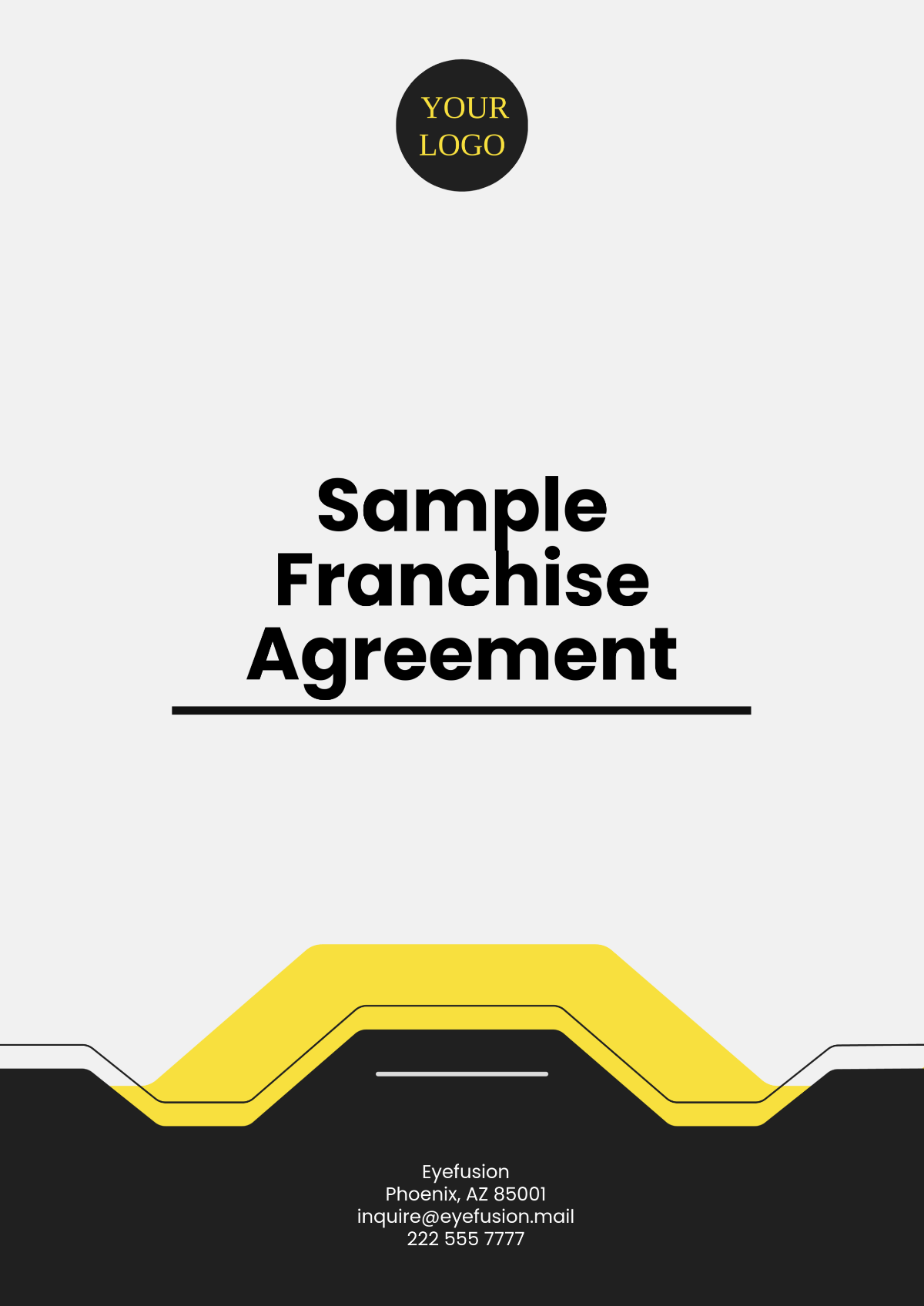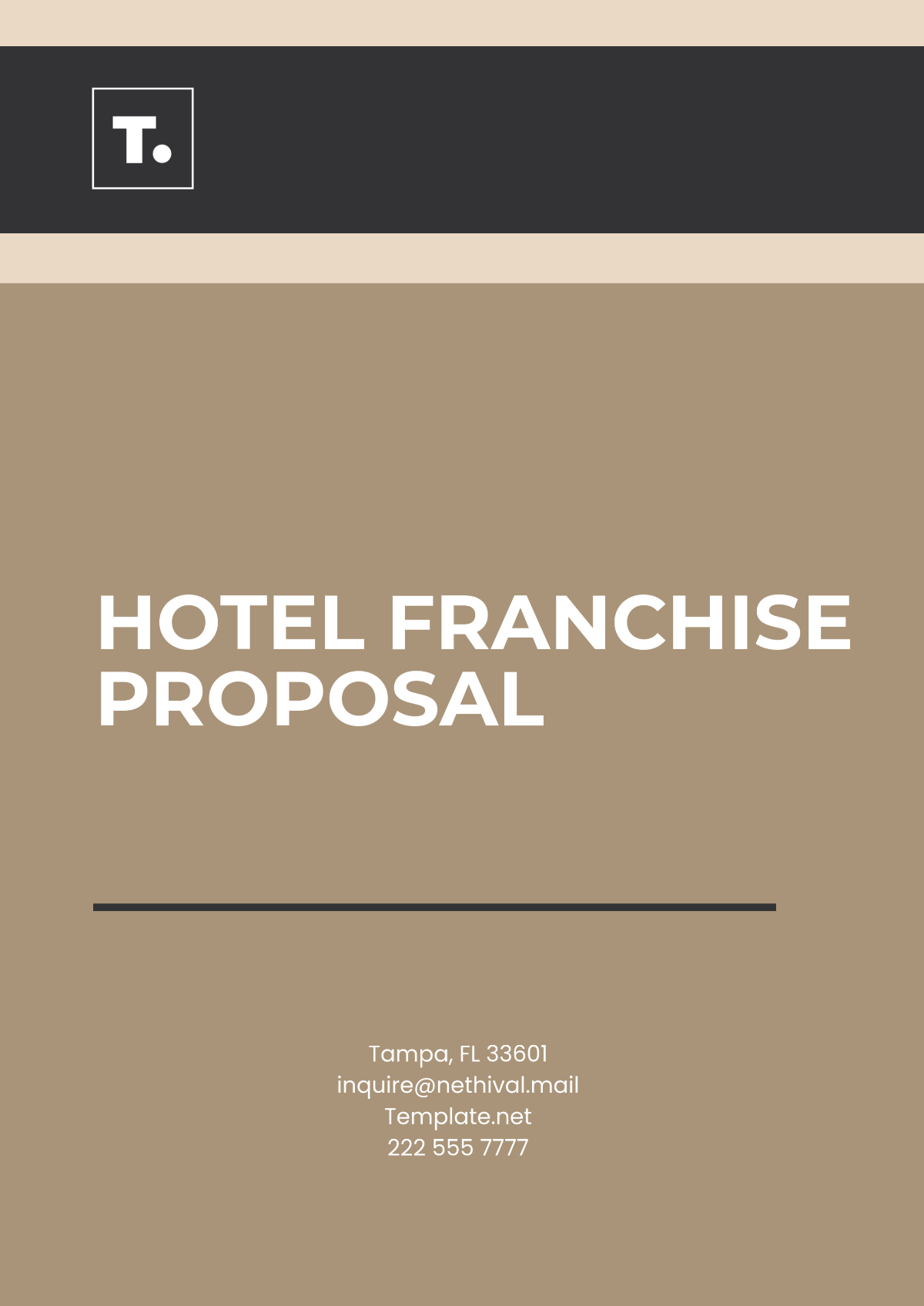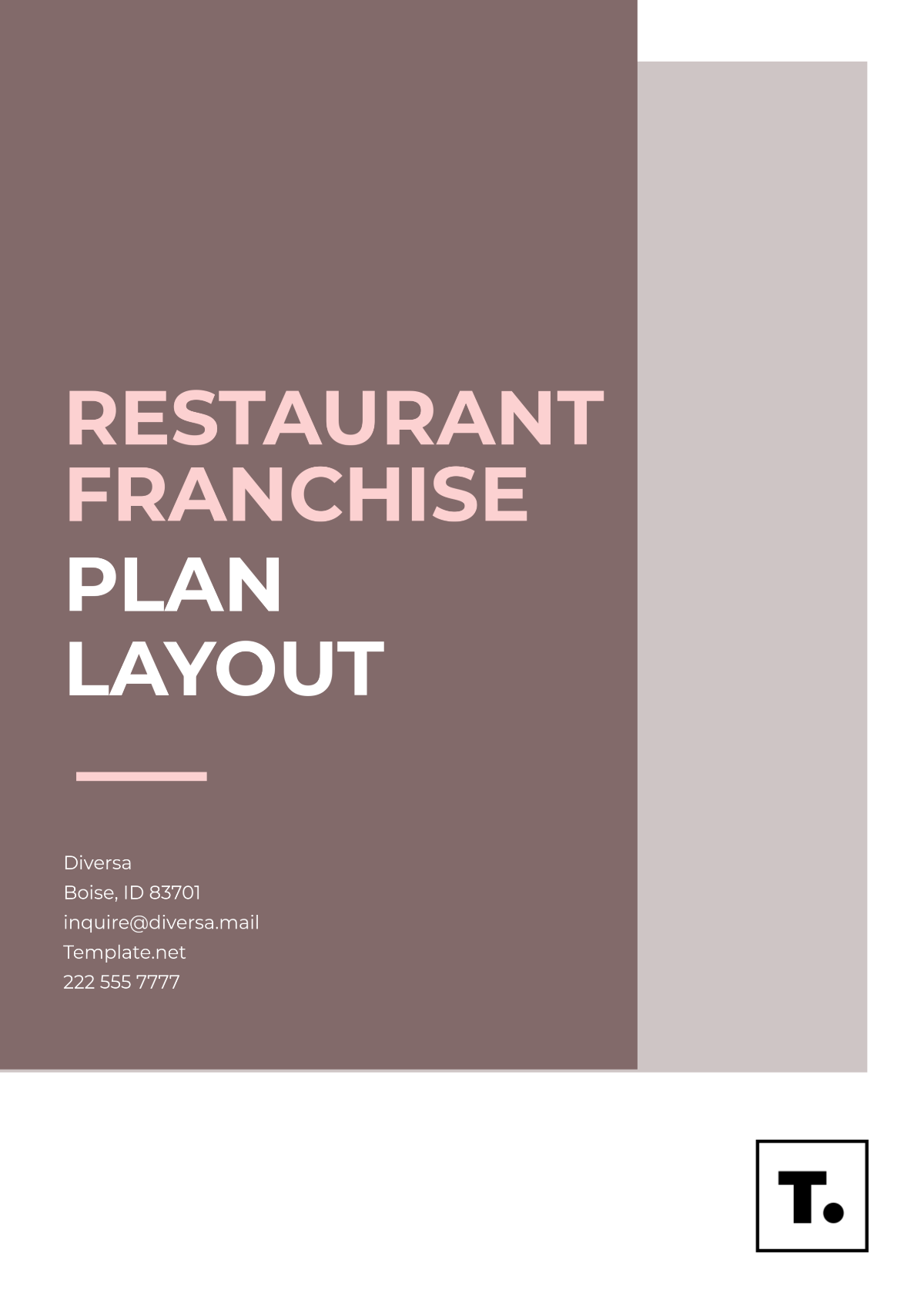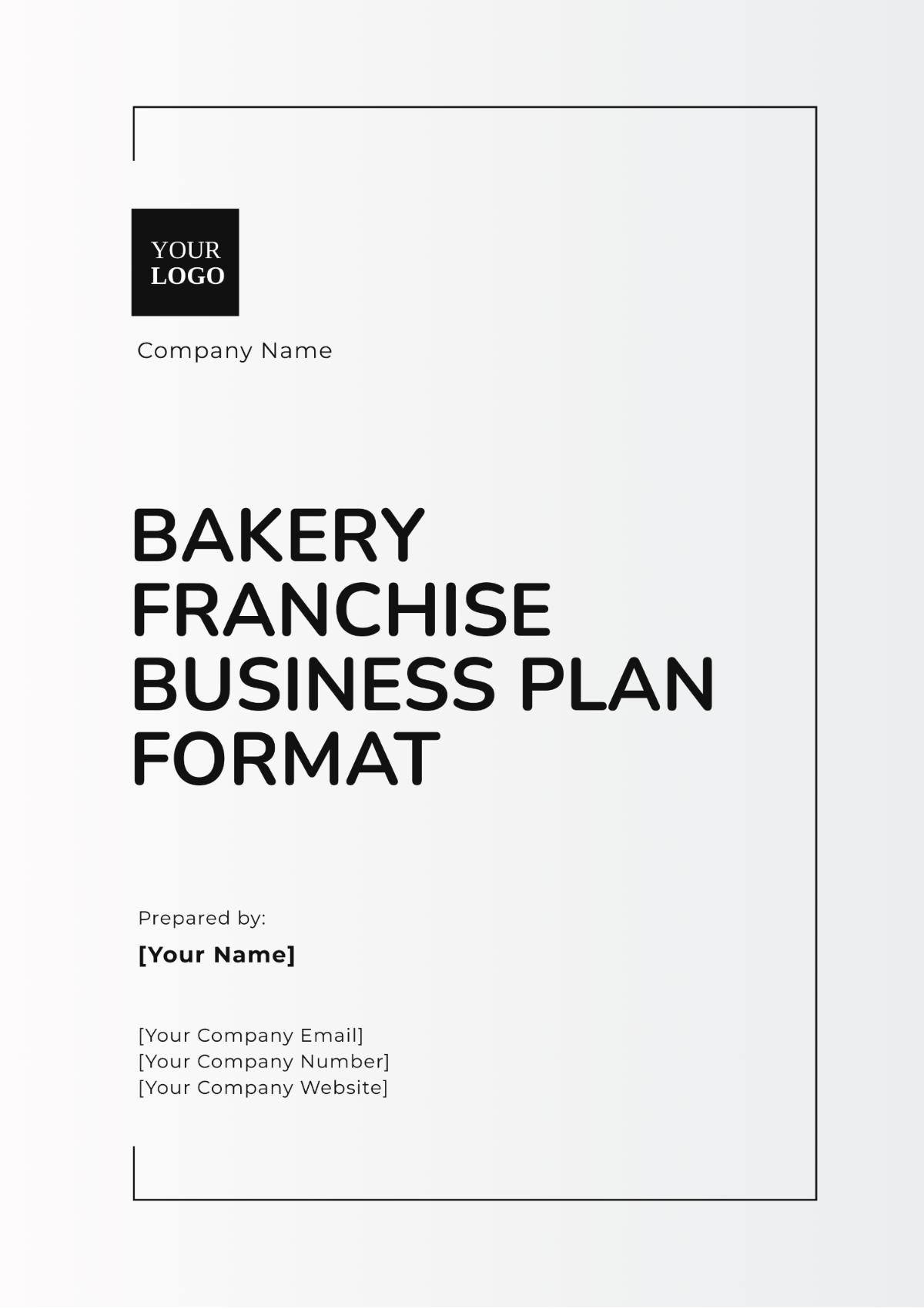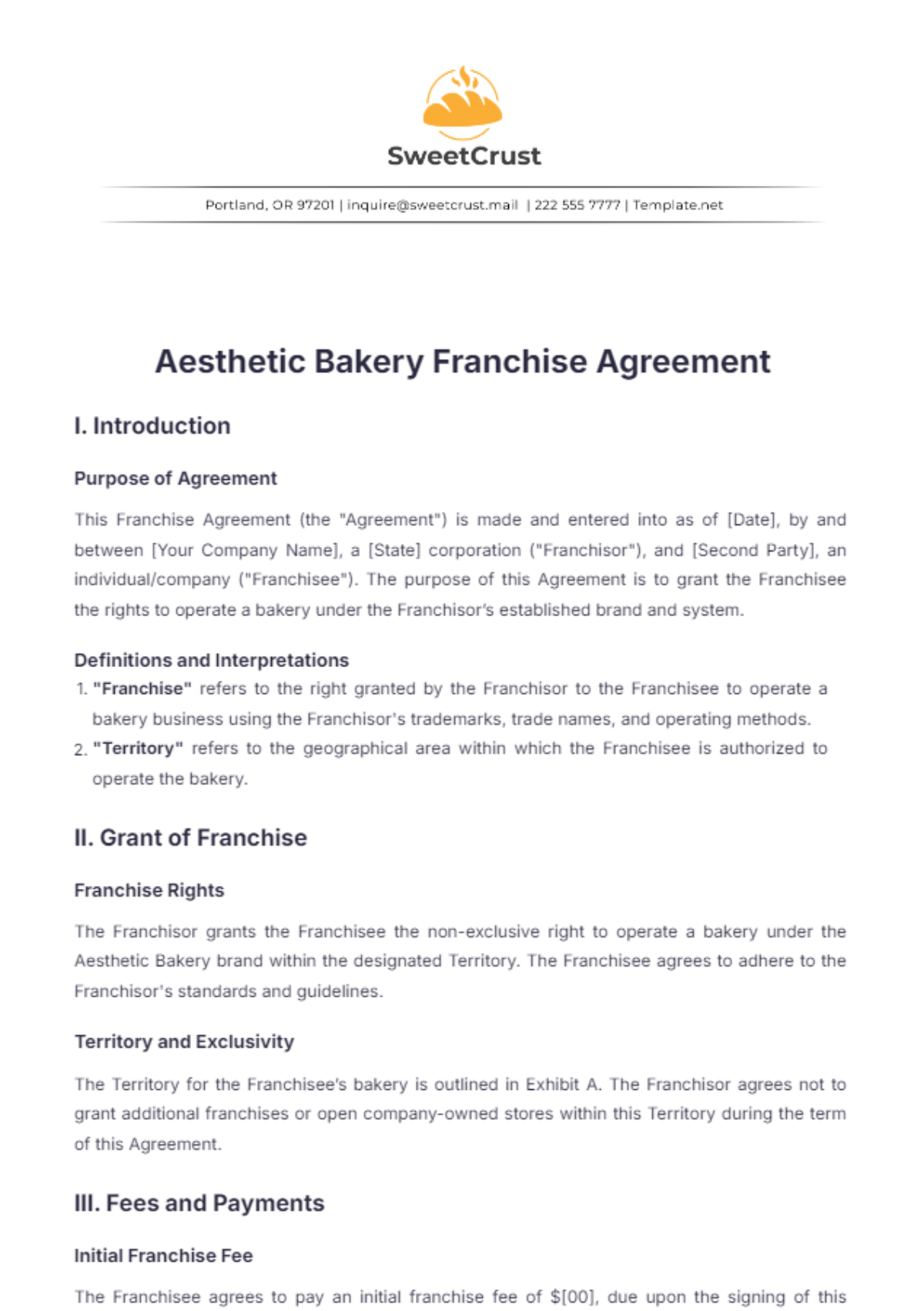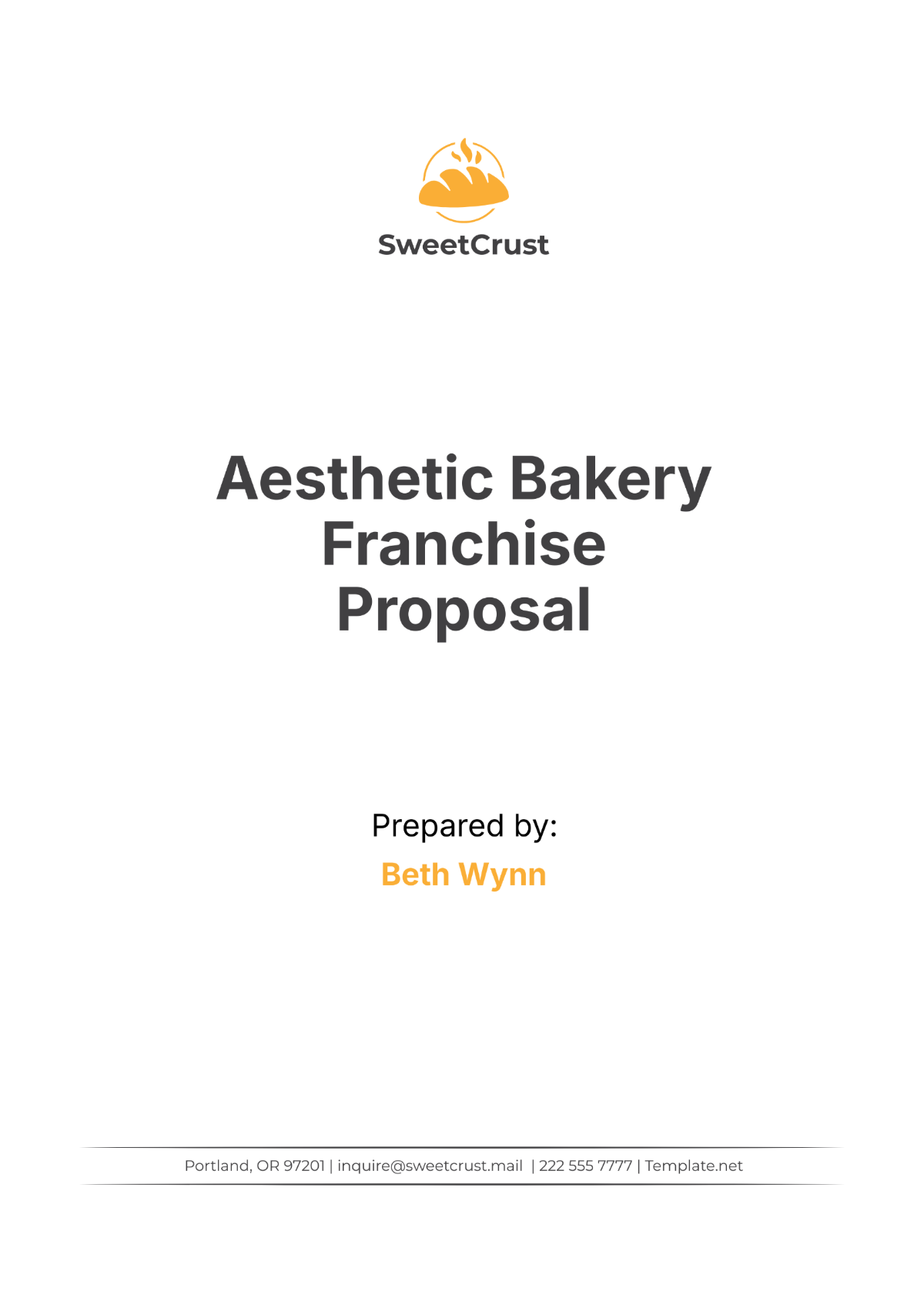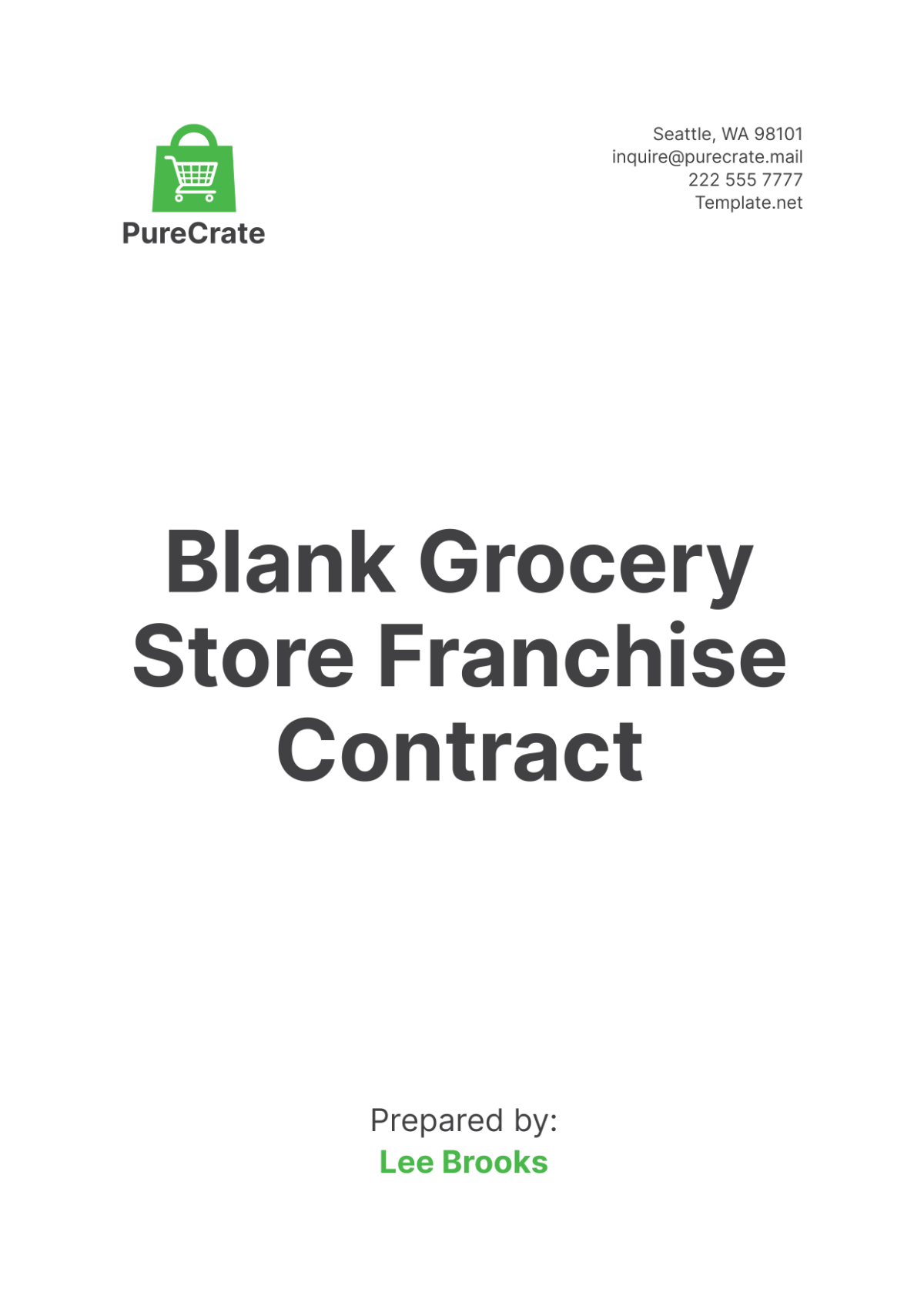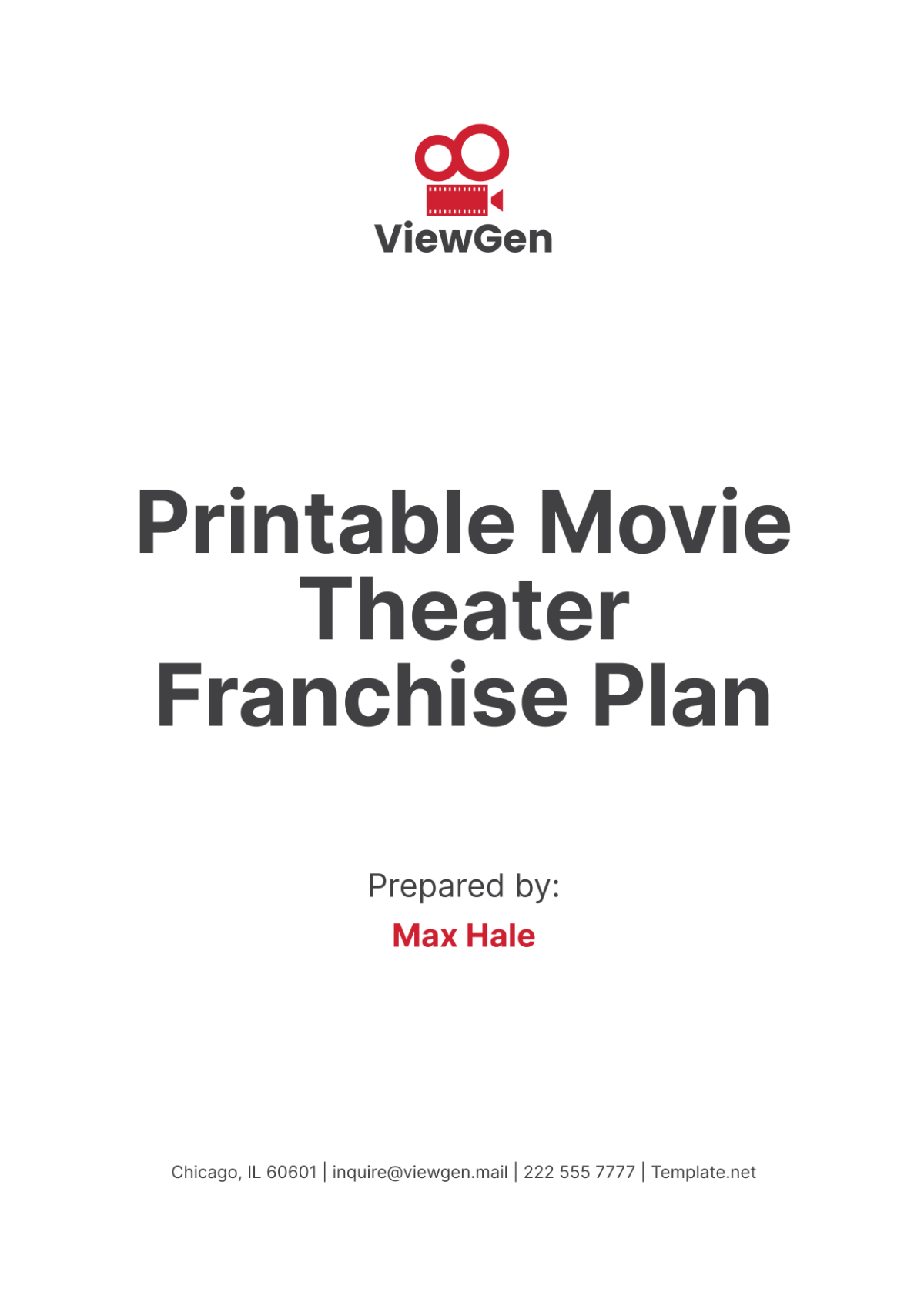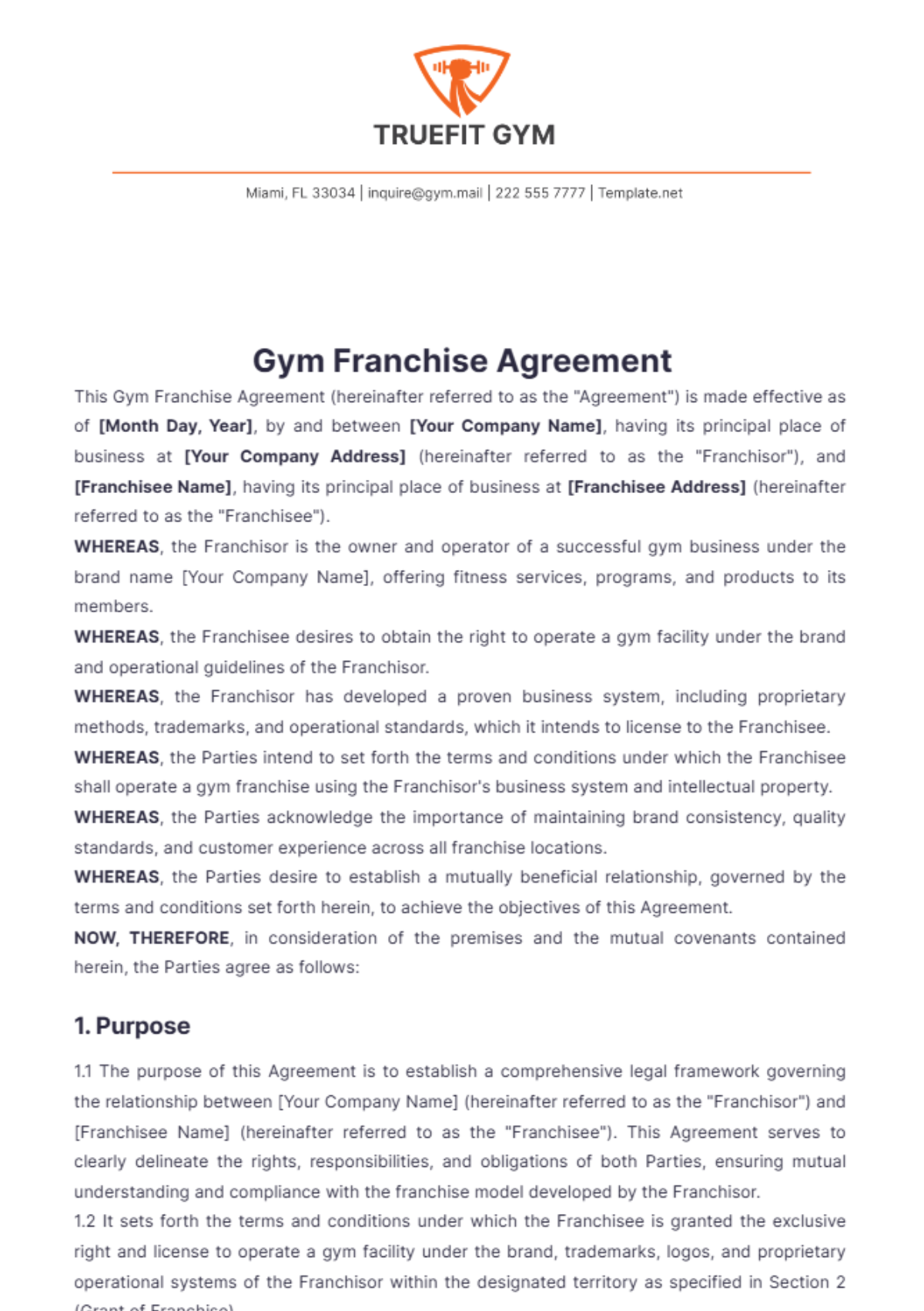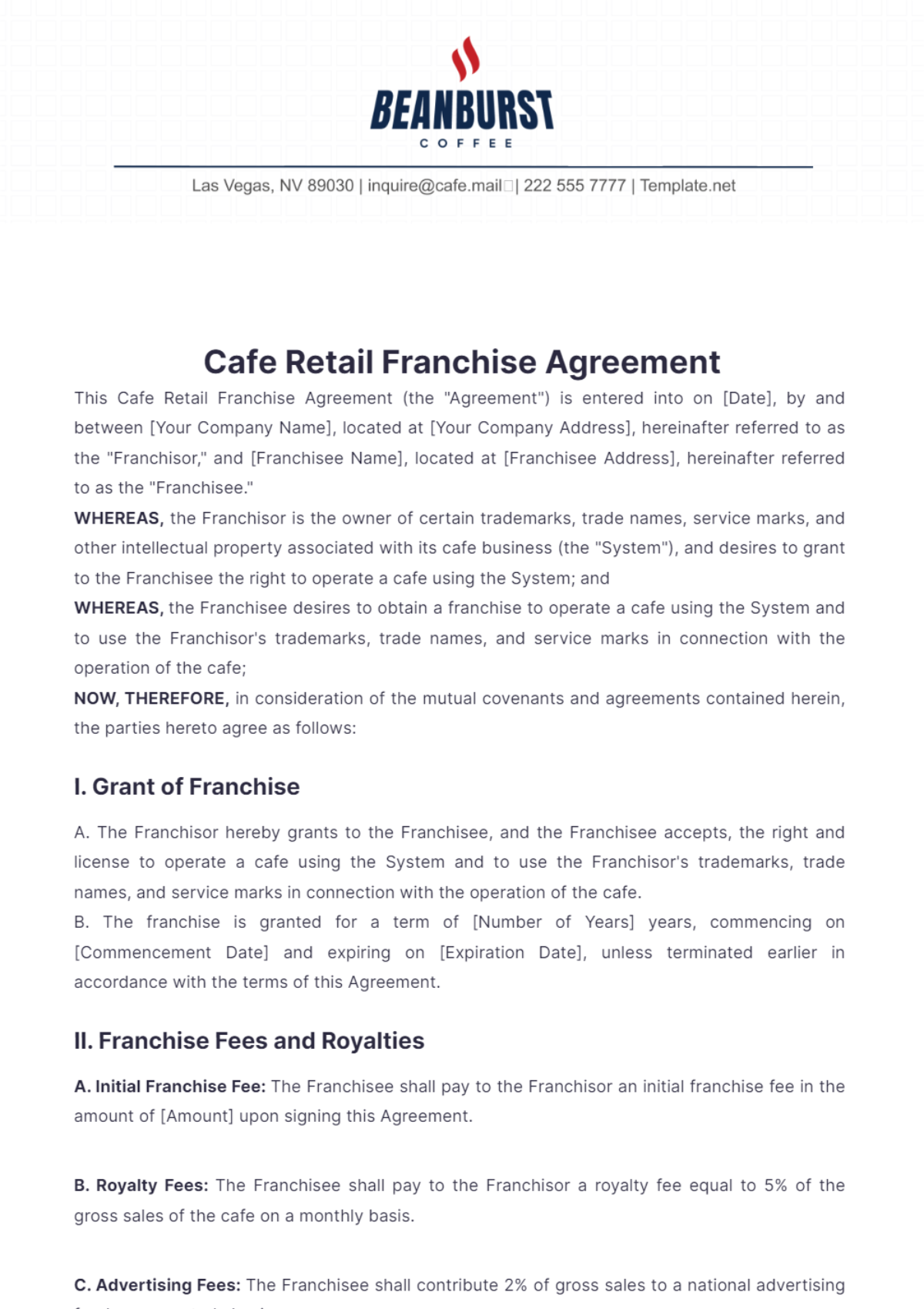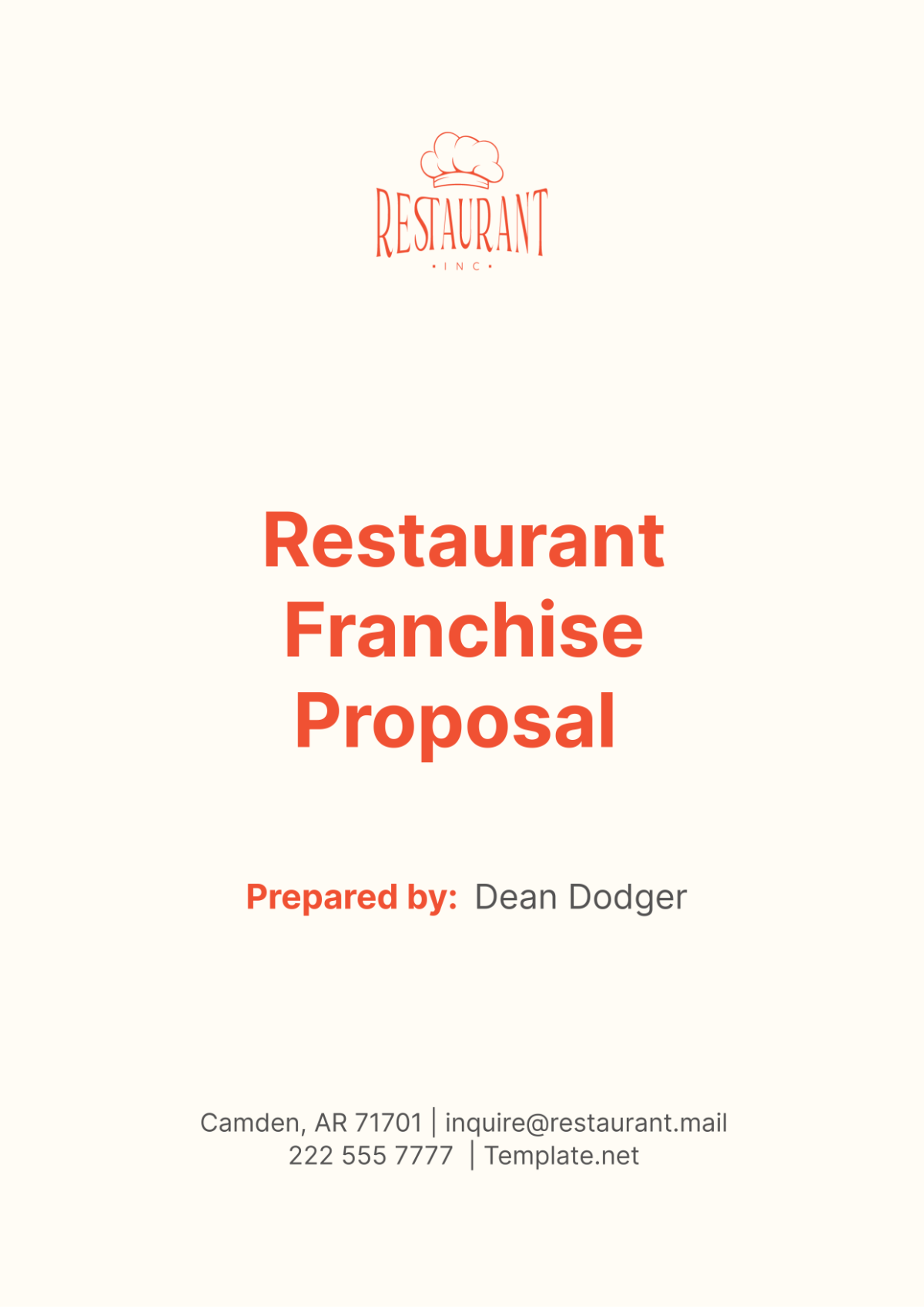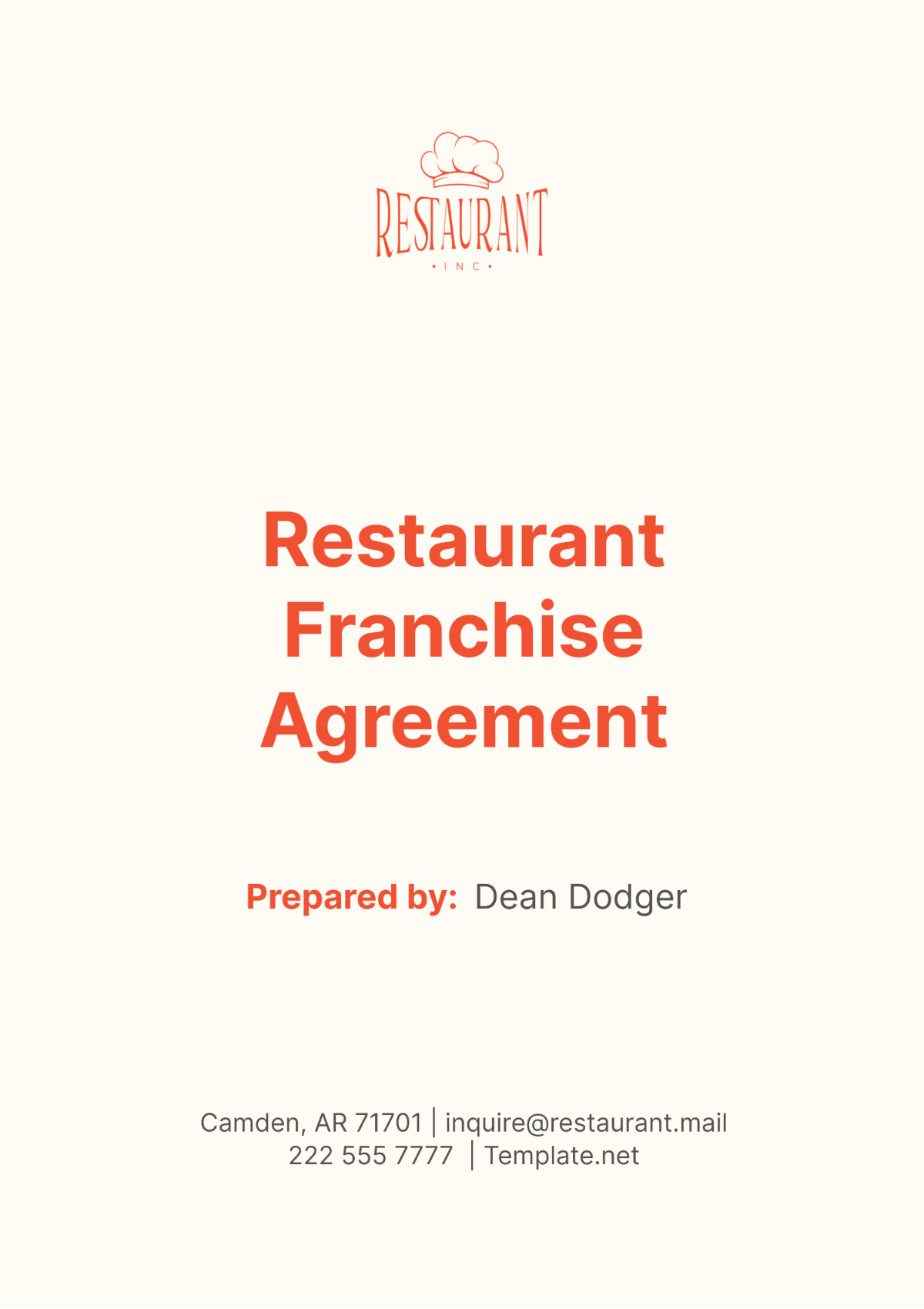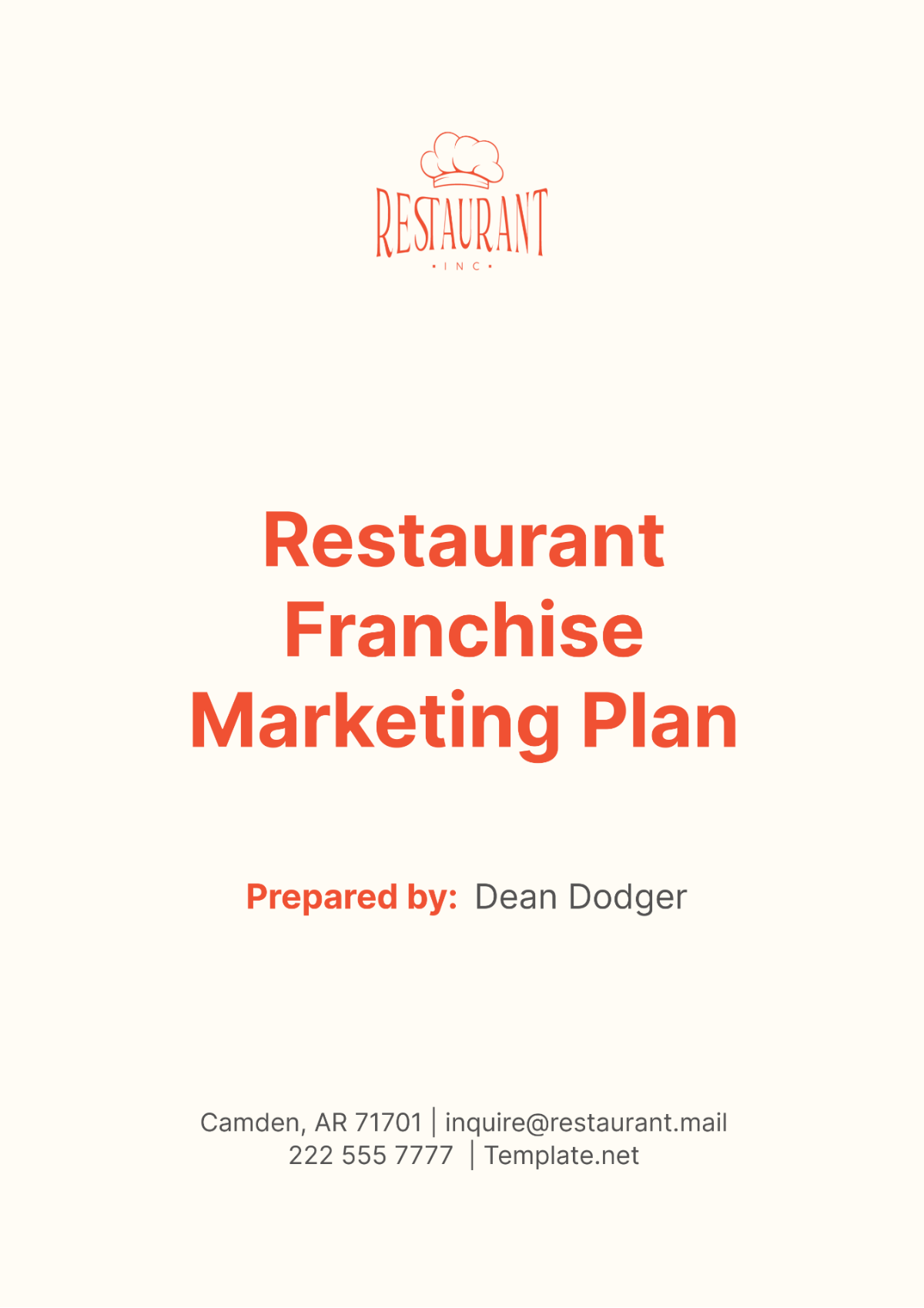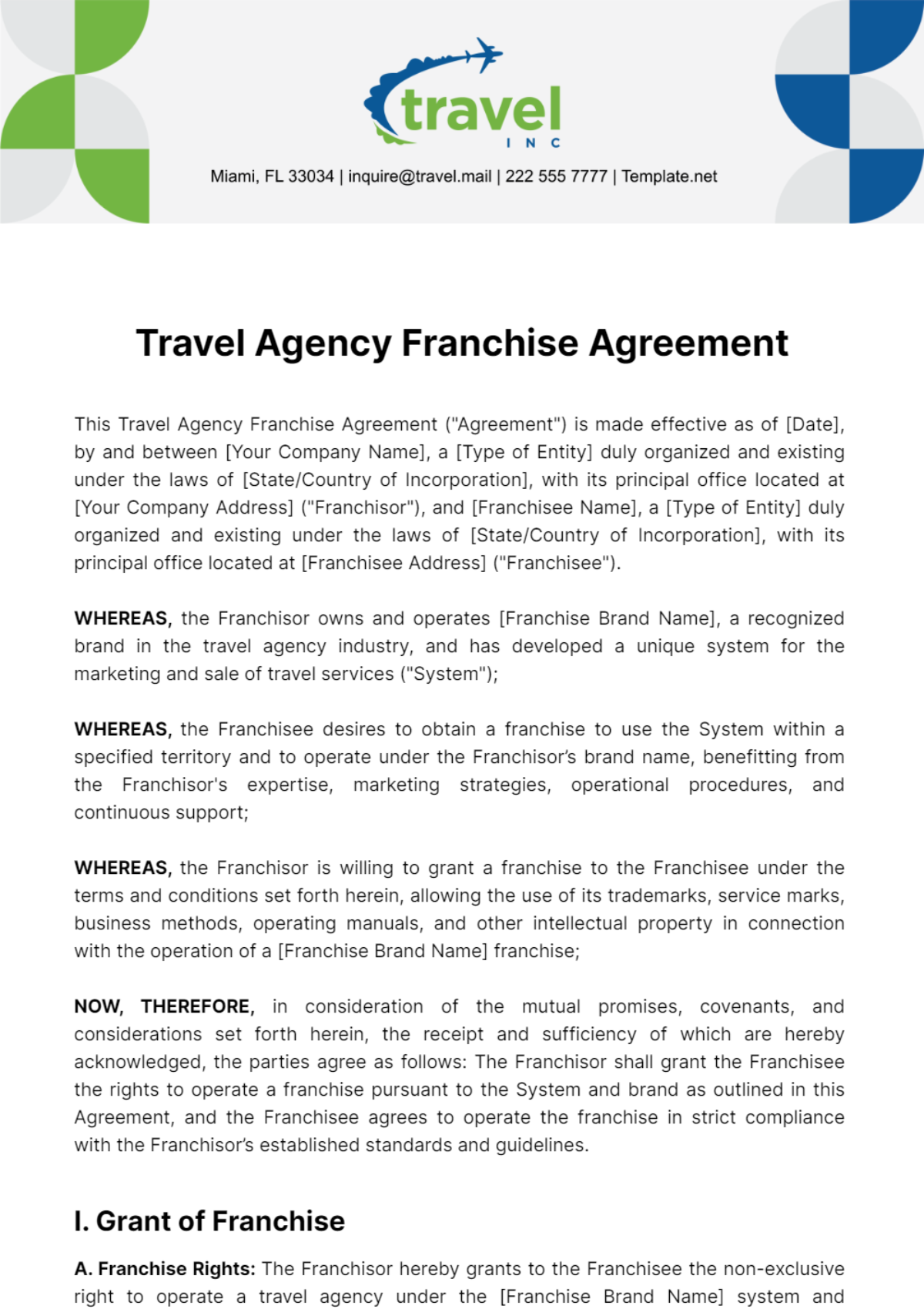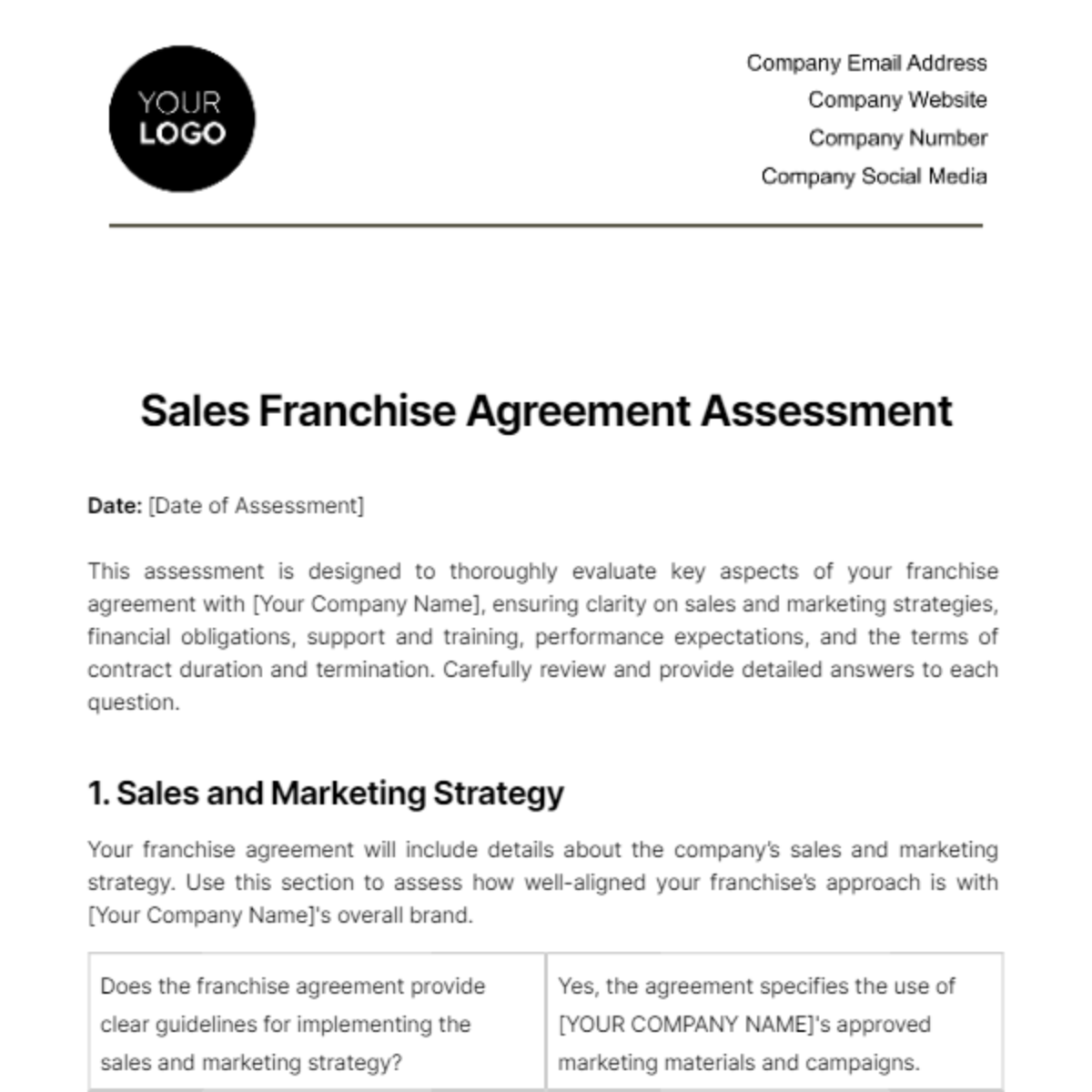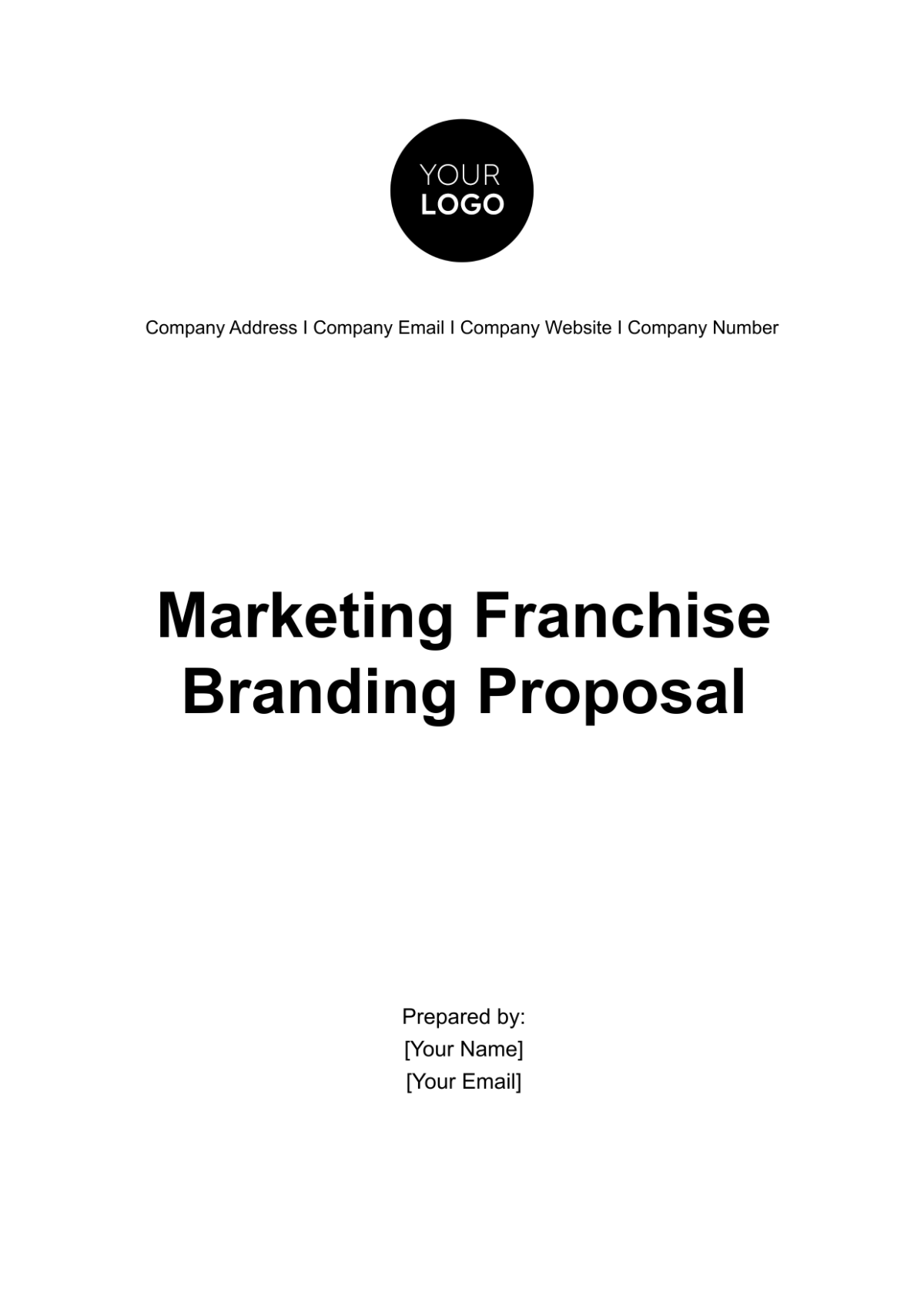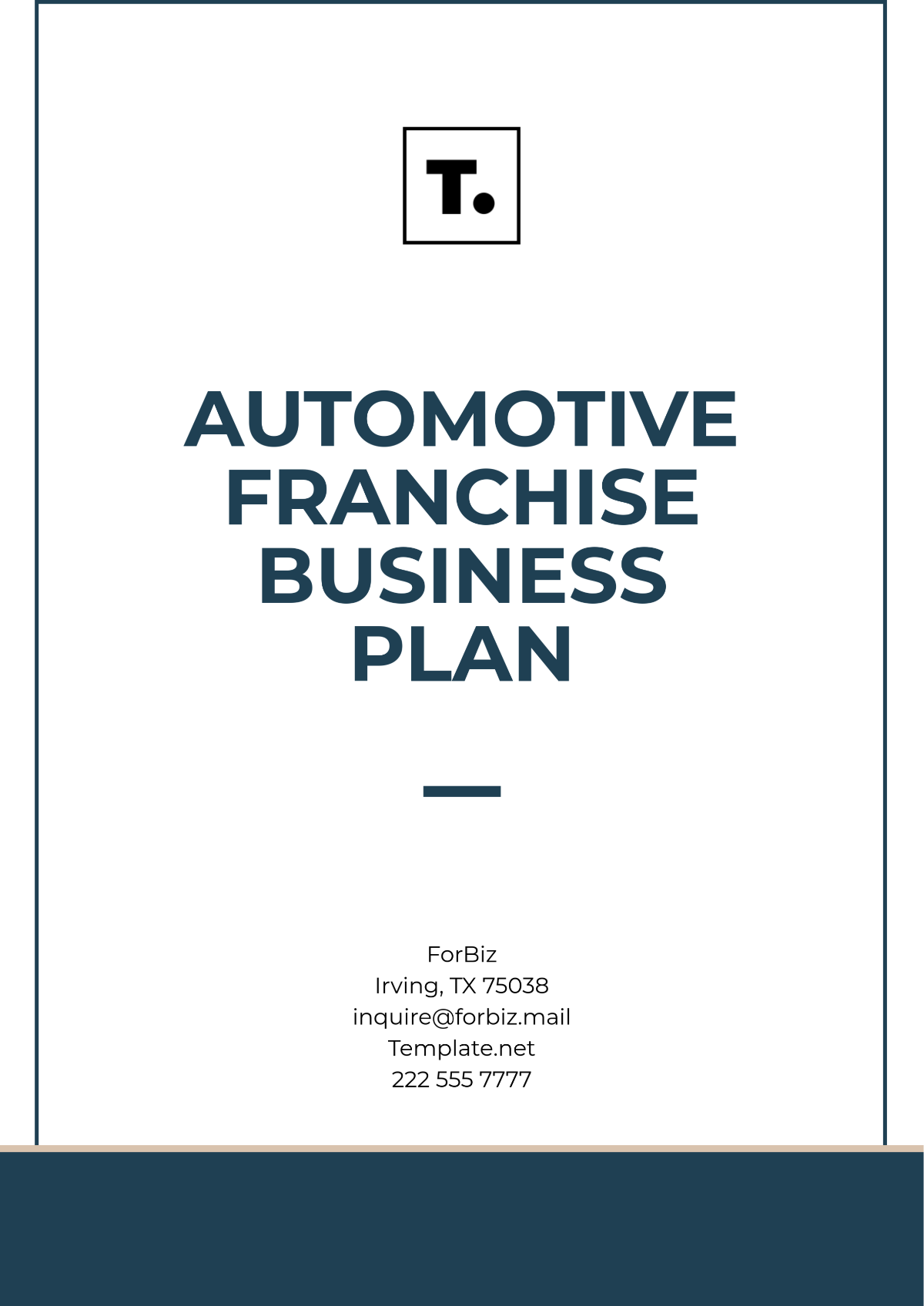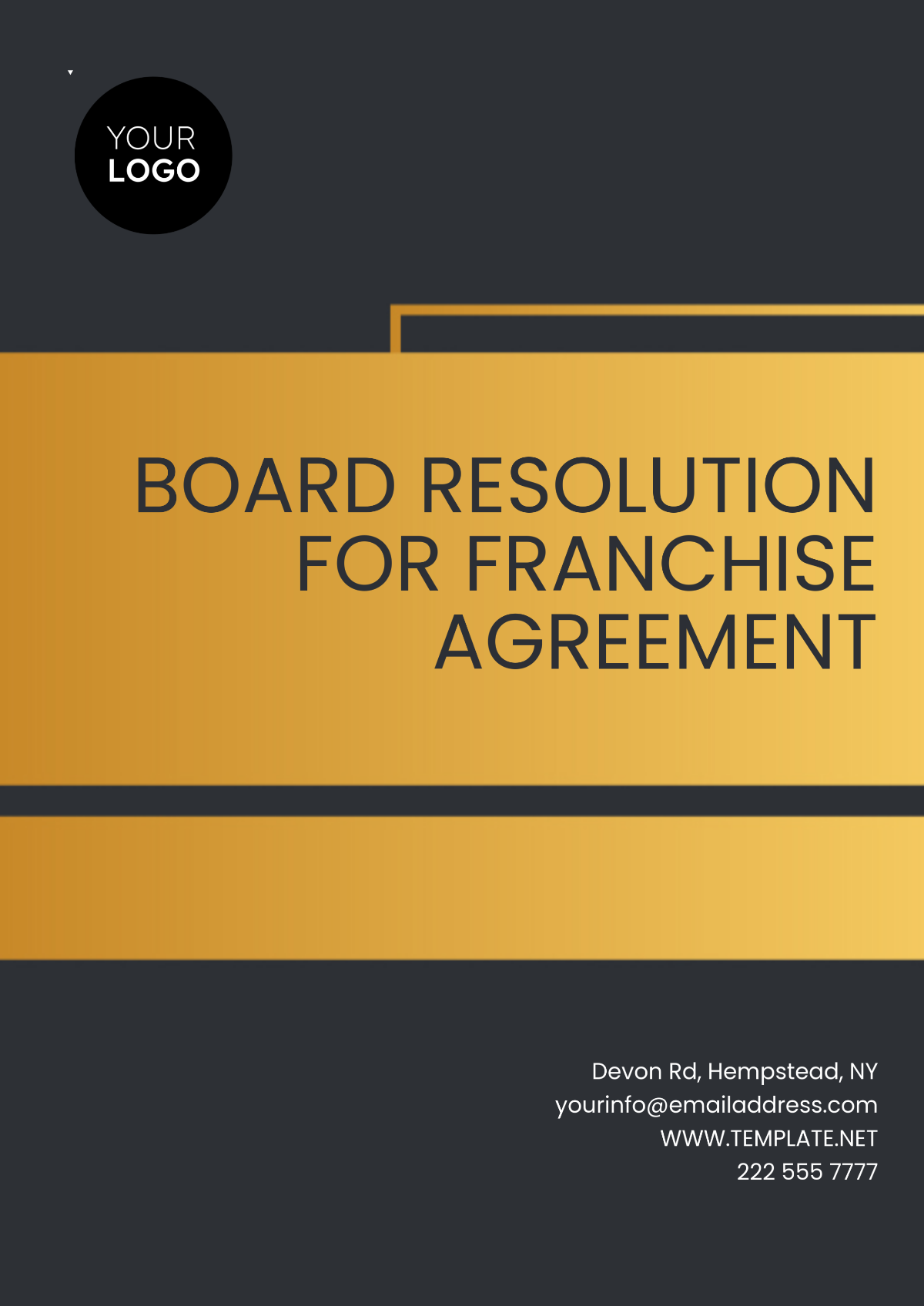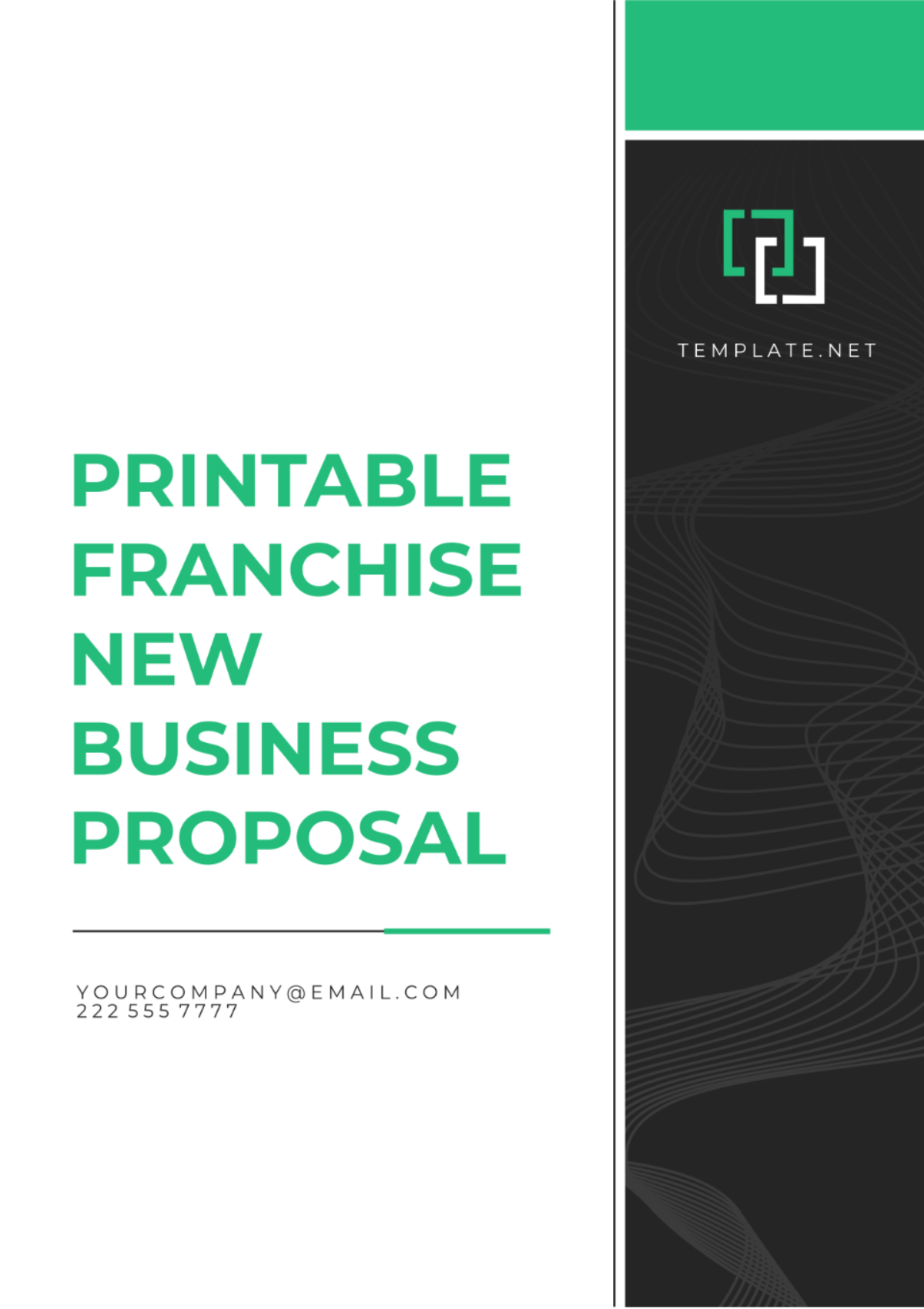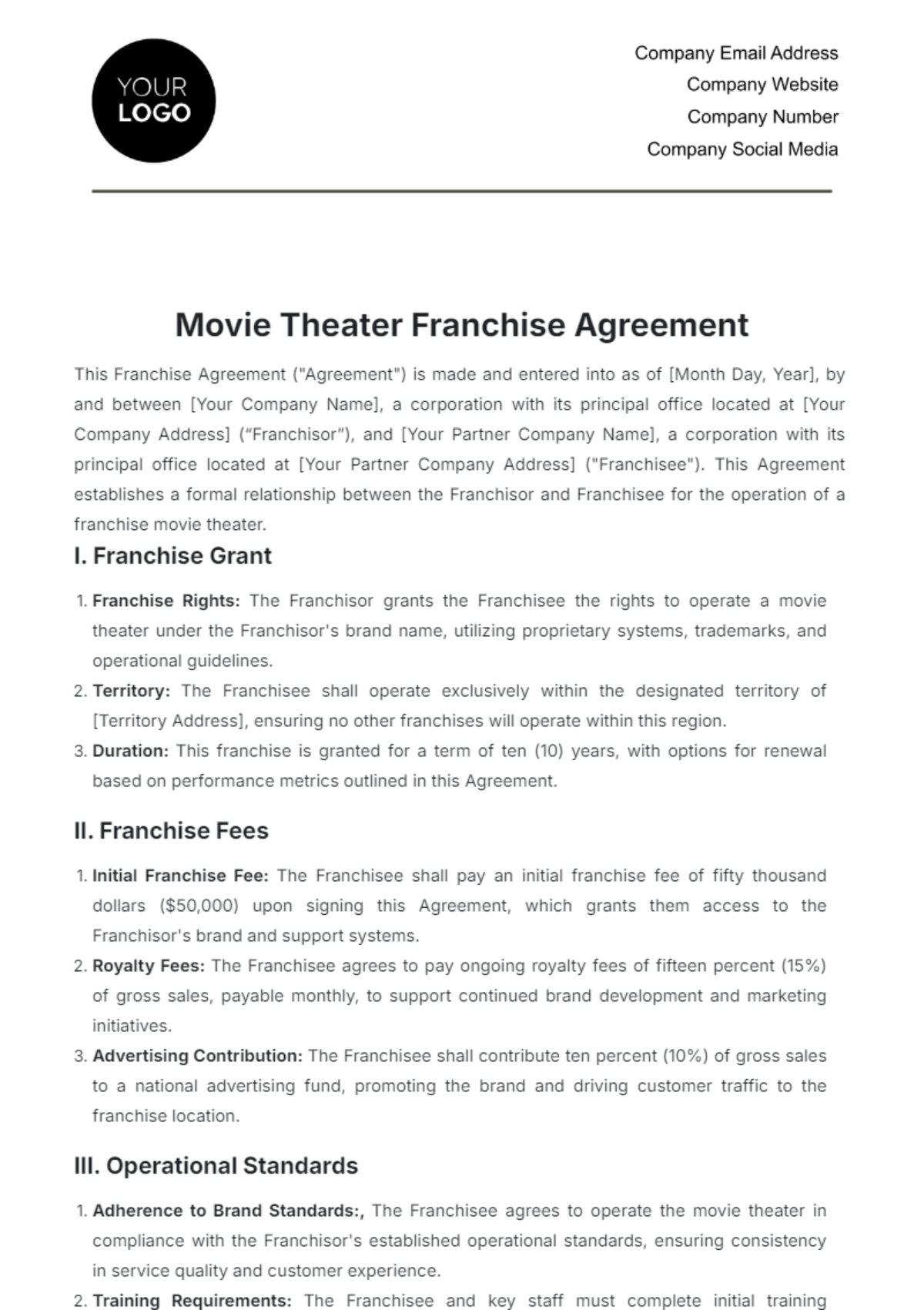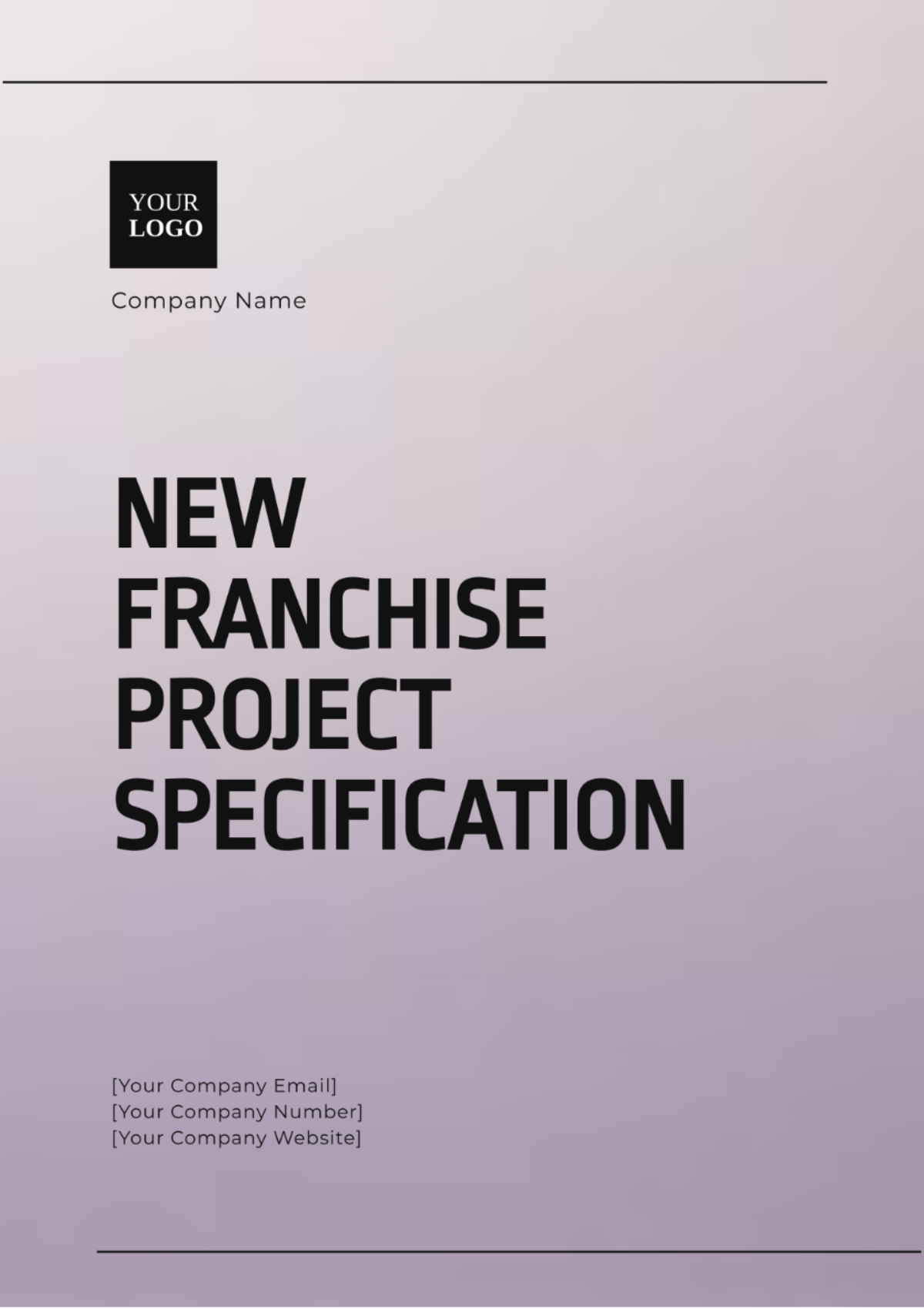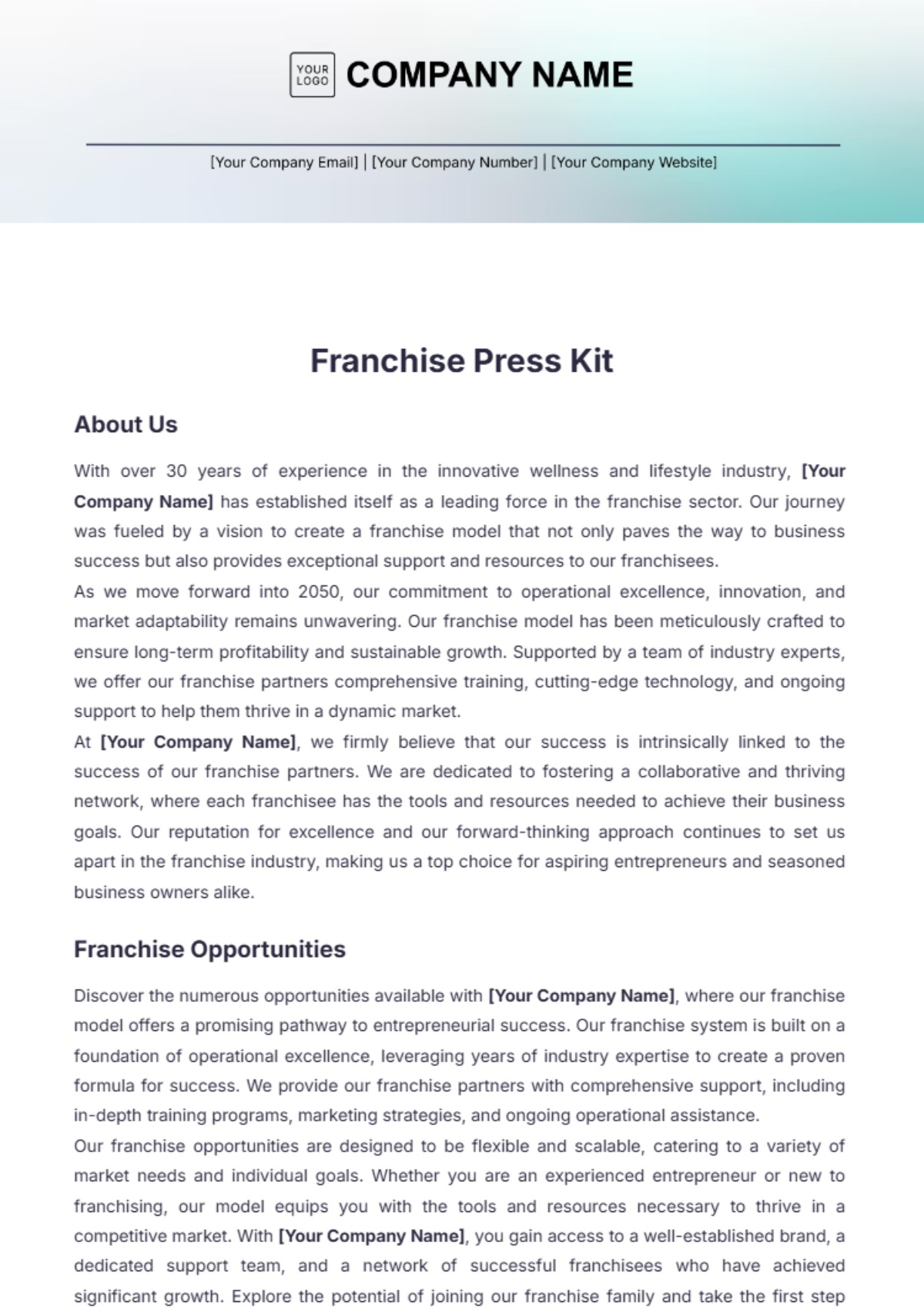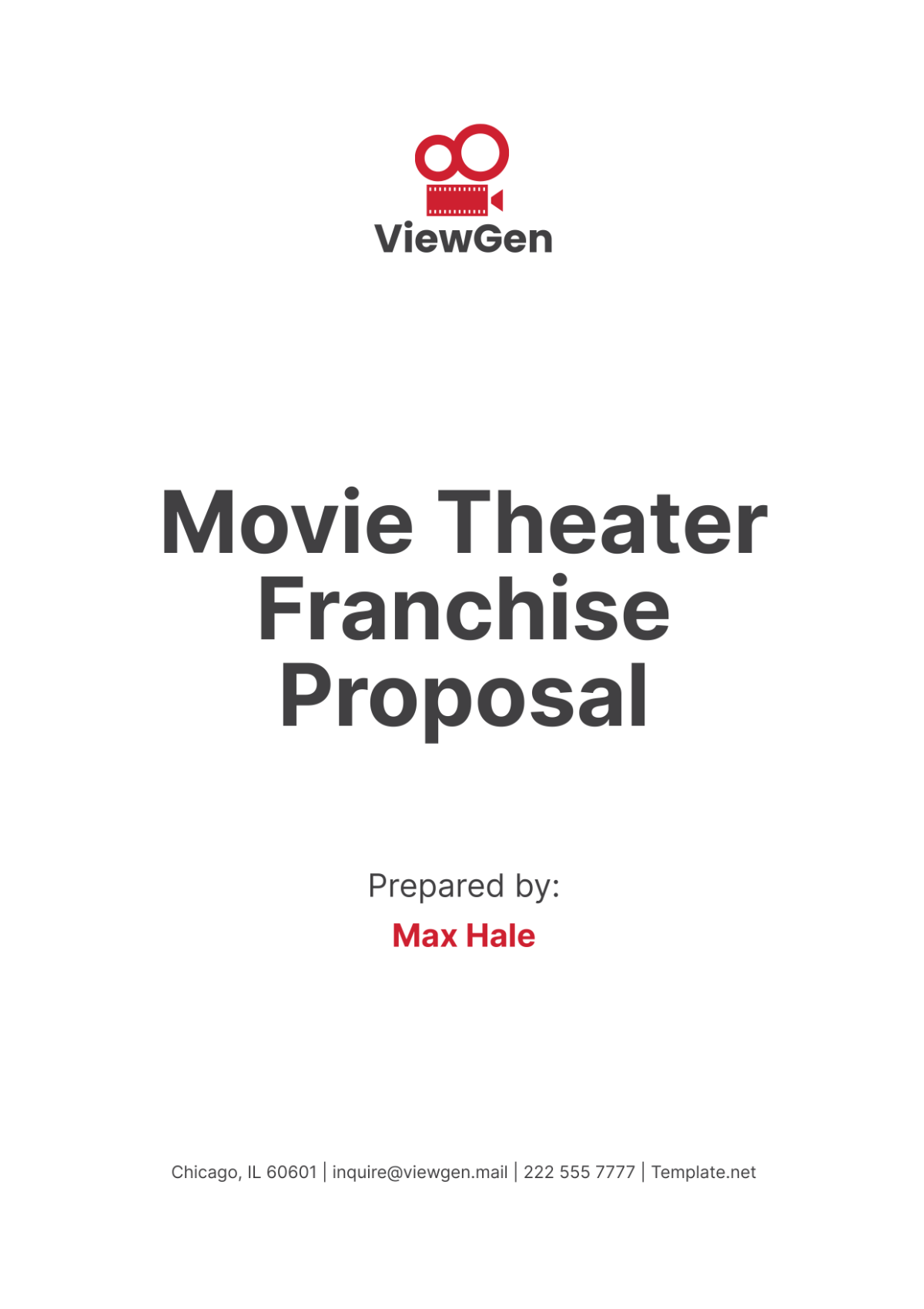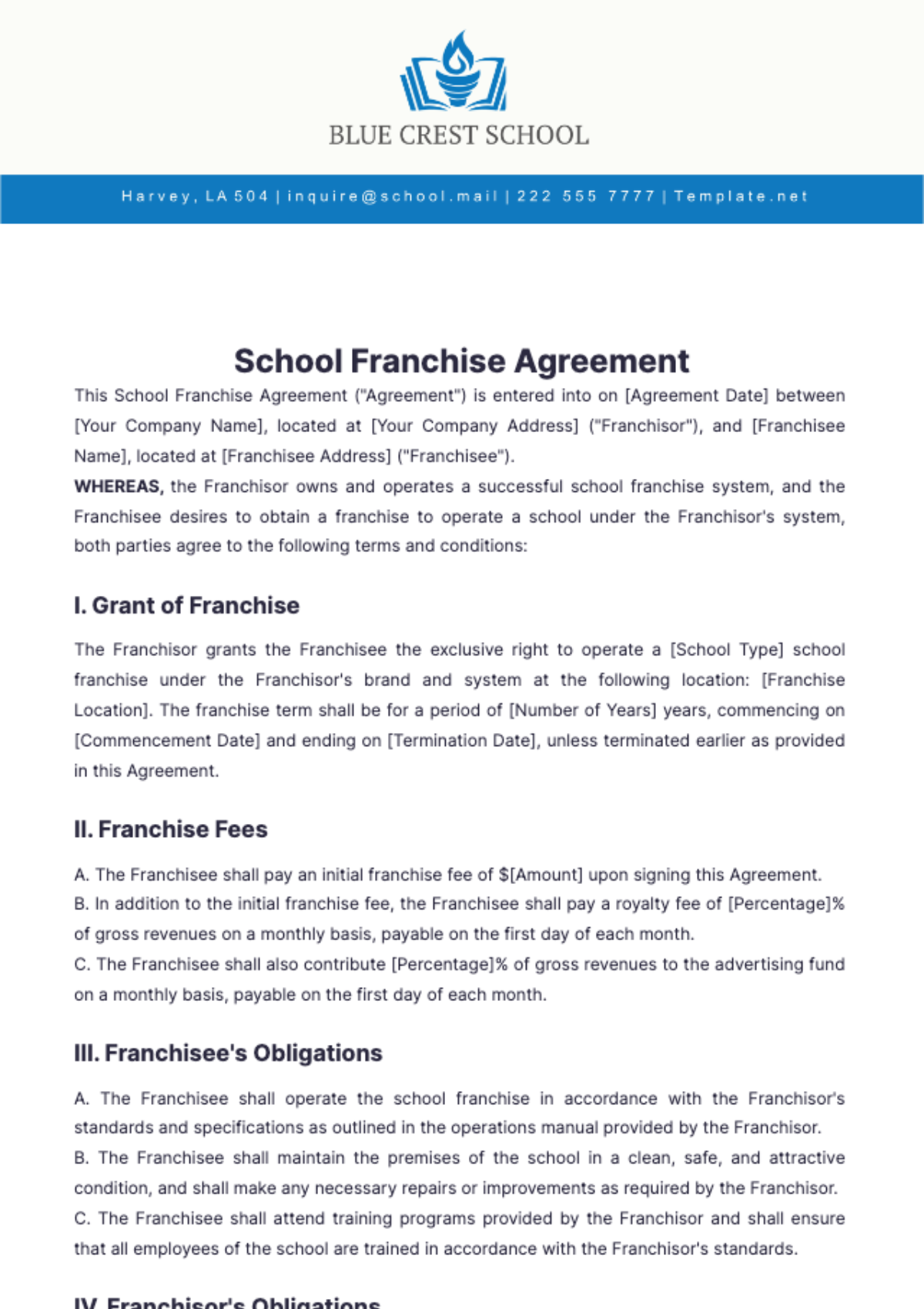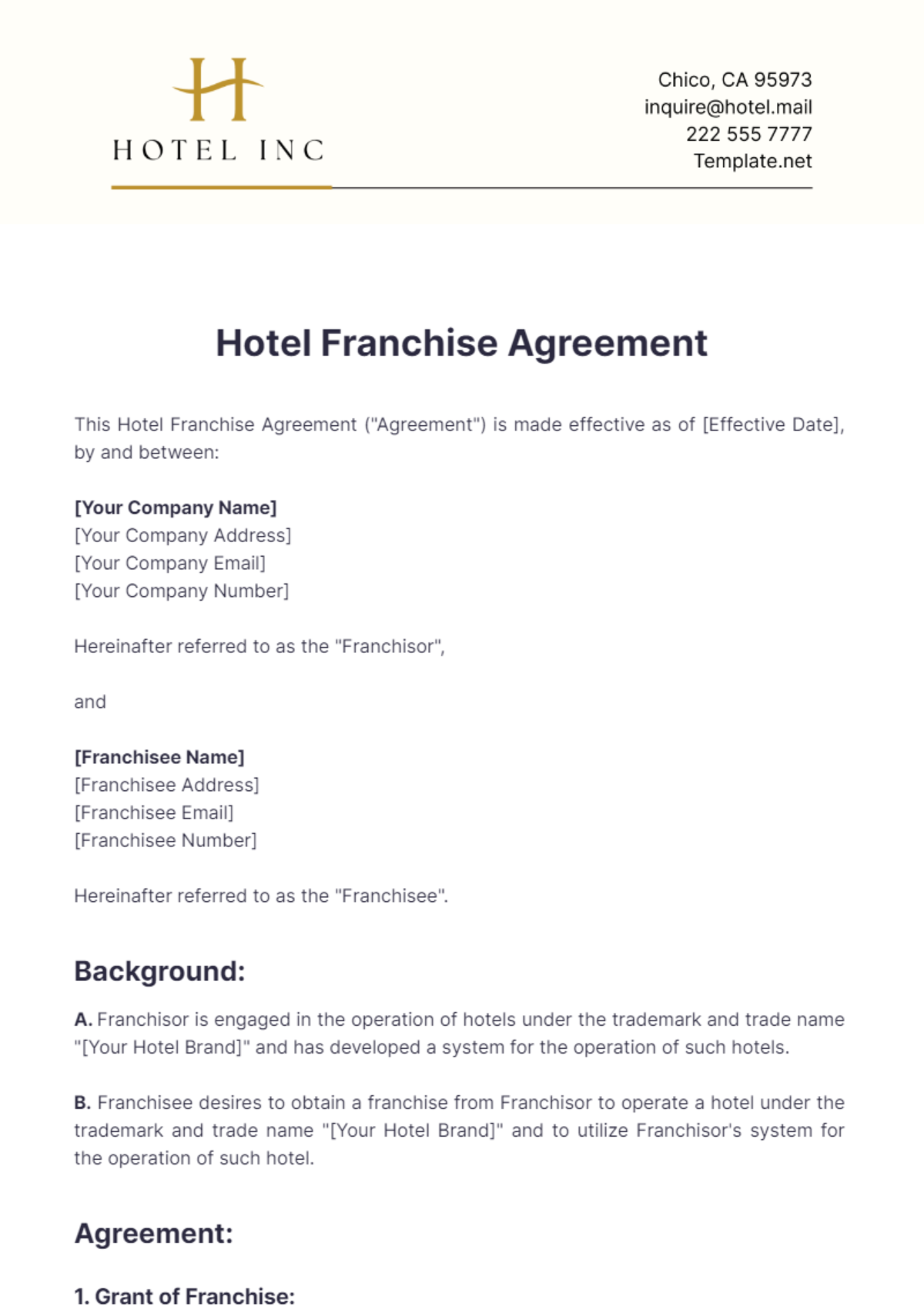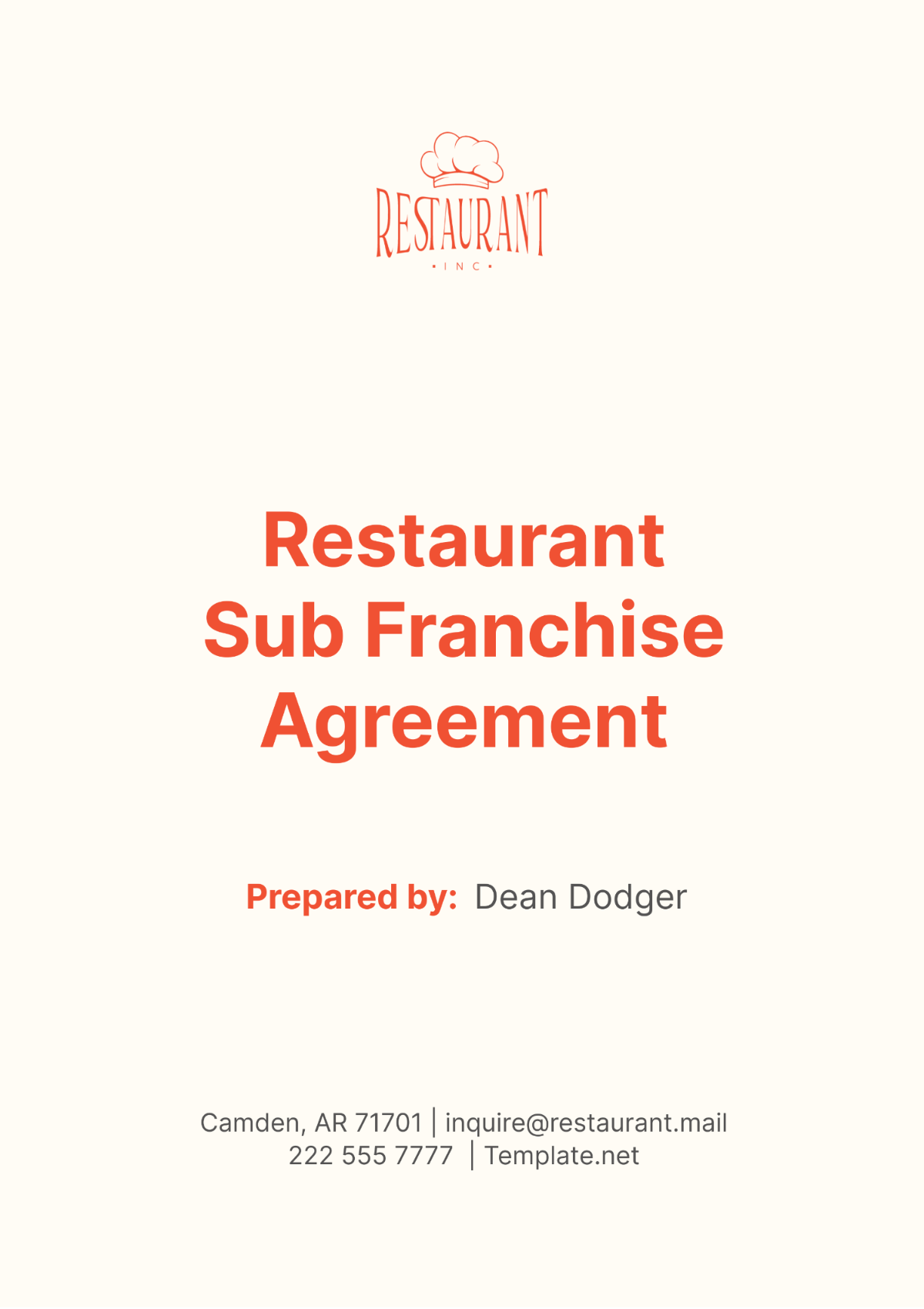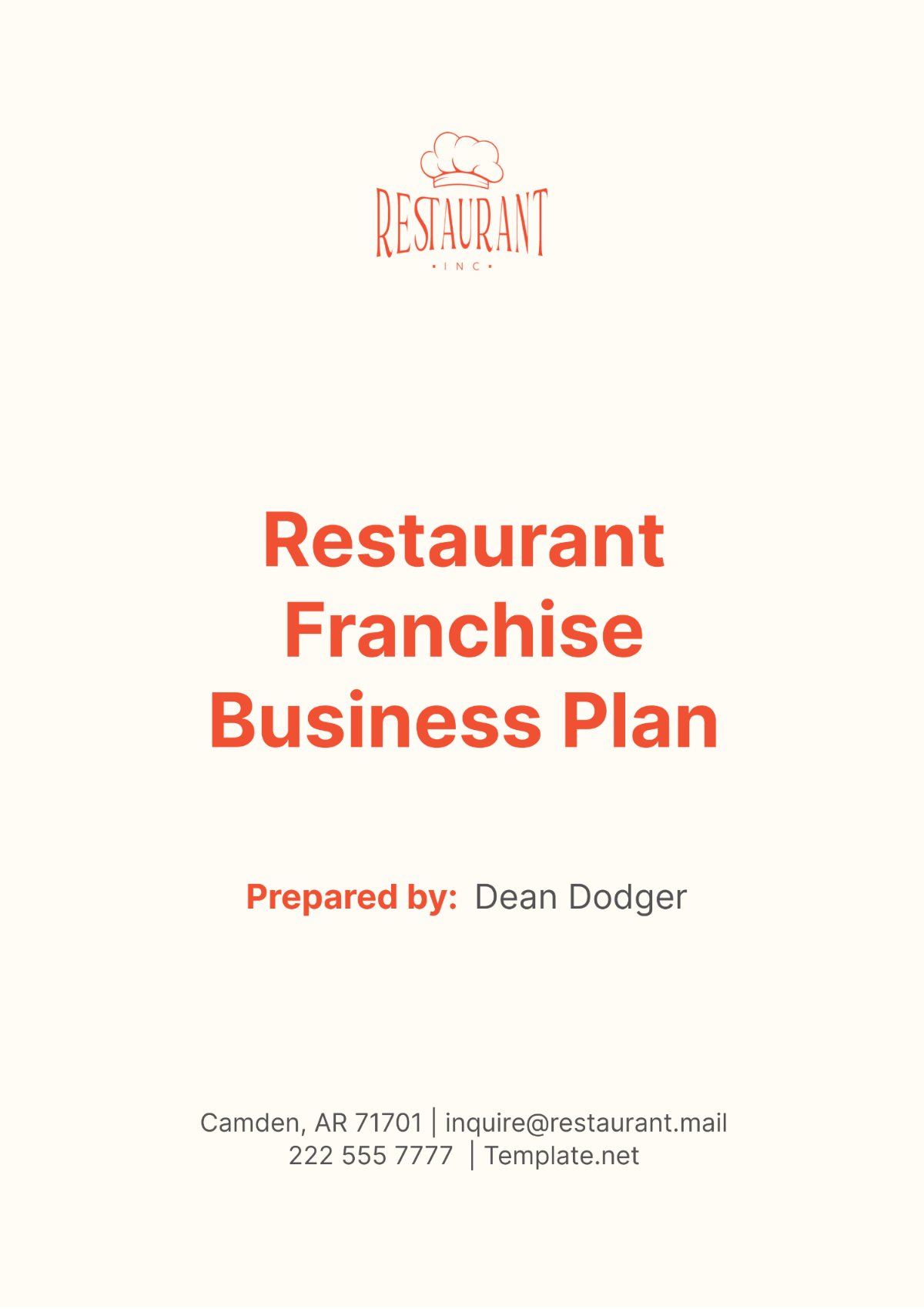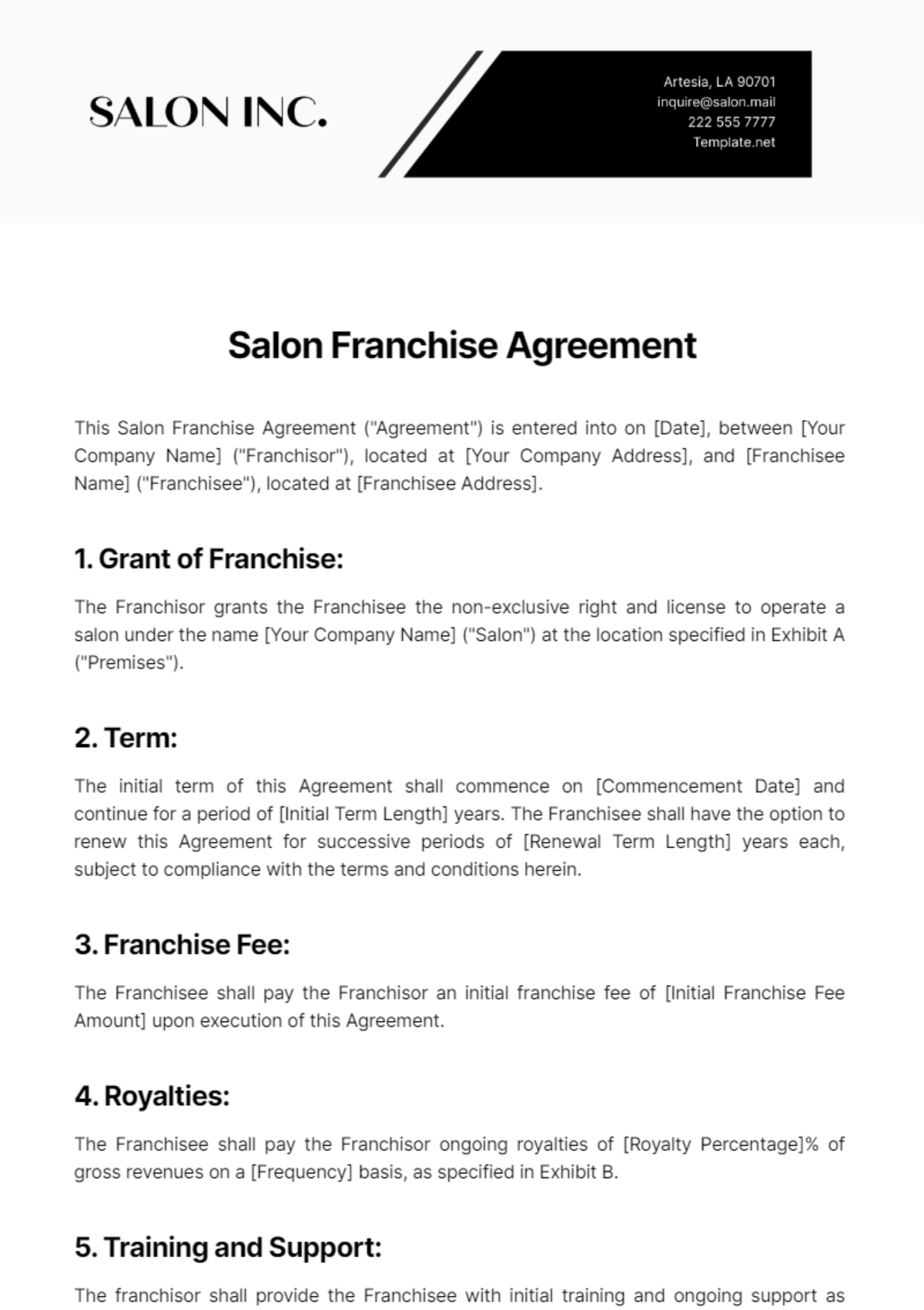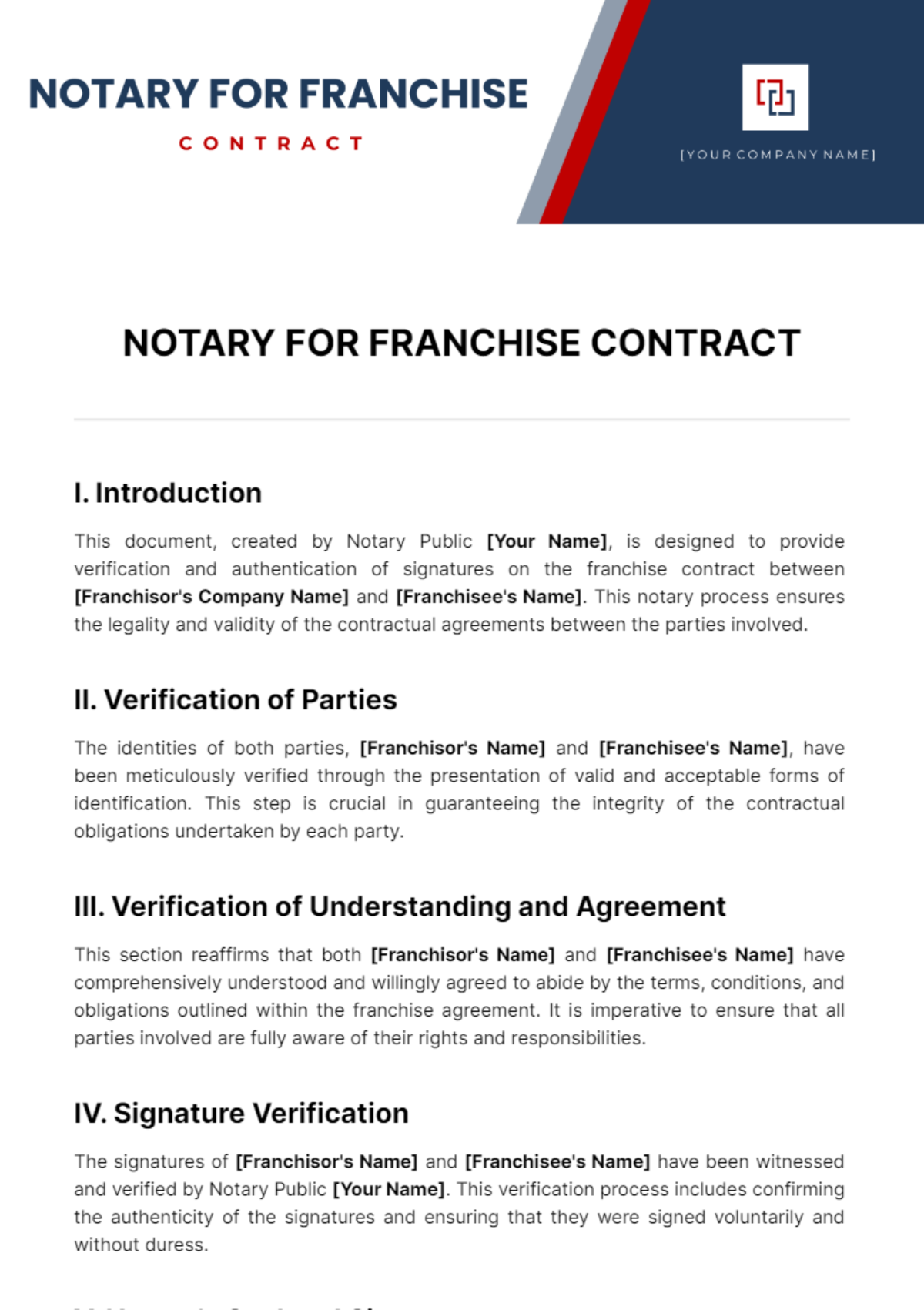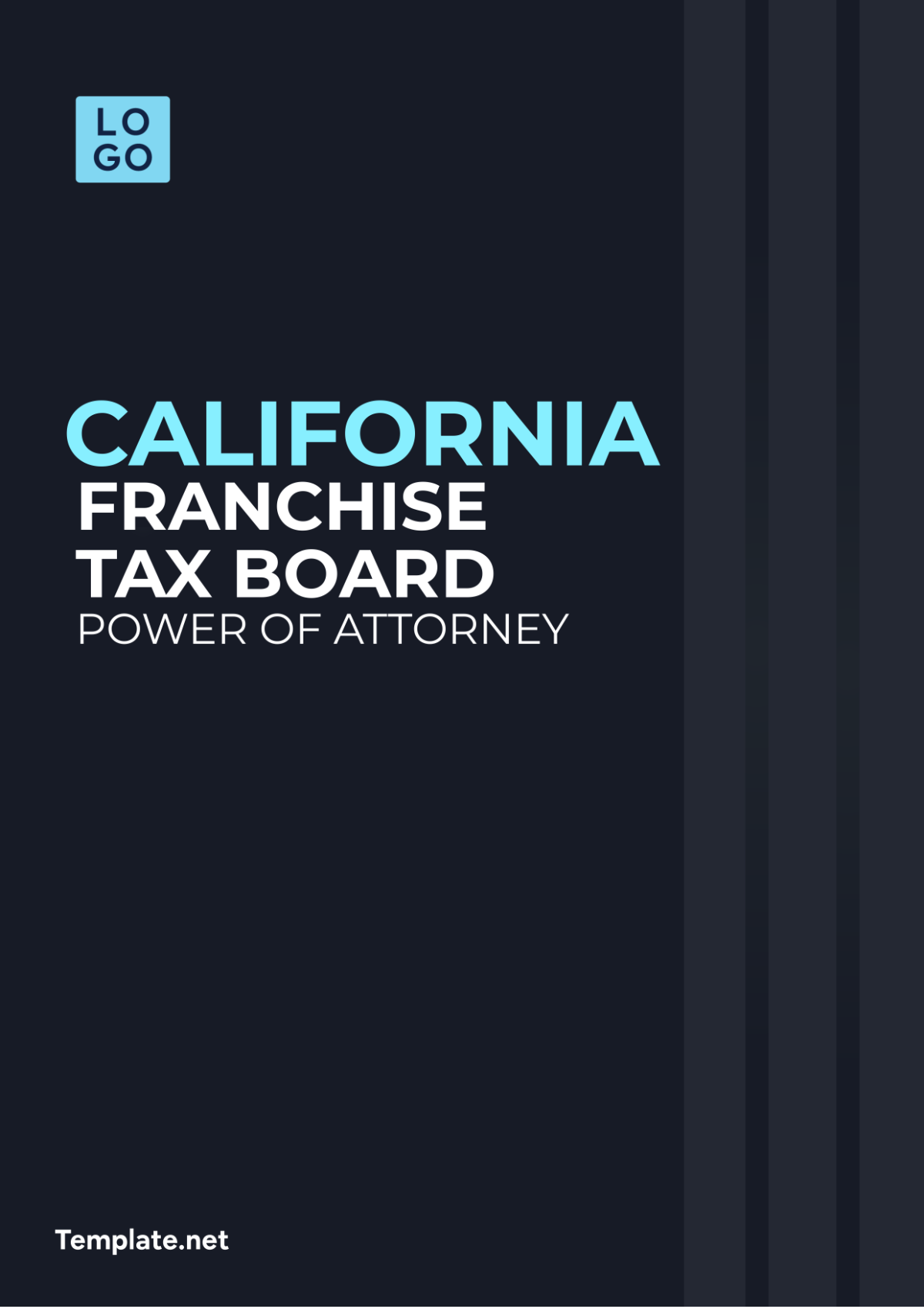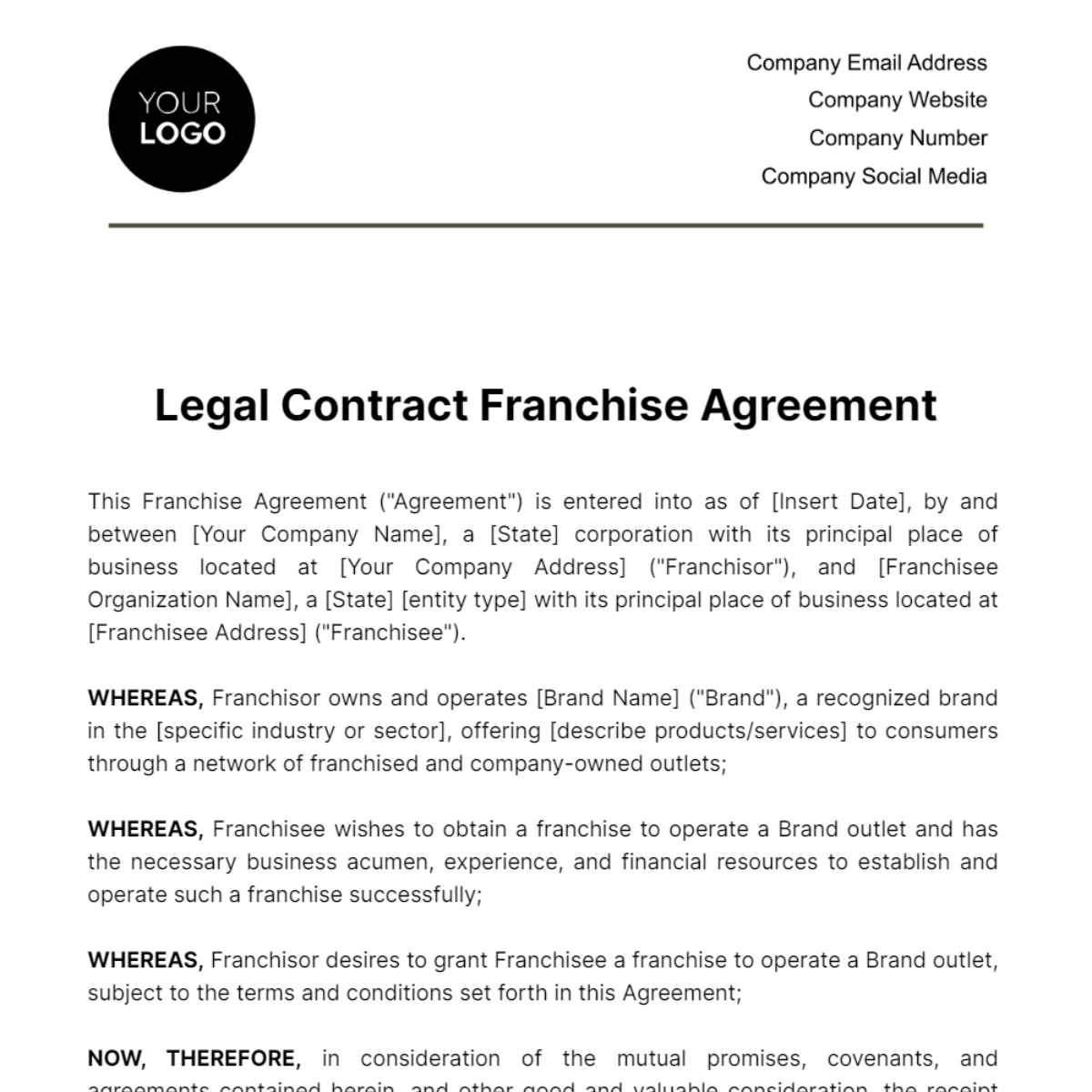New Franchise Project Specification
Prepared By: [YOUR NAME]
Date: [DATE]
I. Executive Summary
This document details the plan to launch a new franchise aimed at expanding our business model through a franchise network. Our objective is to grow our brand, ensure operational consistency, and deliver high-quality products and services while achieving sustainable profitability.
II. Business Model and Concept
A. Business Model
Our franchise model enhances both profitability and brand strength through the implementation of several key strategies and practices, including the following:
Established Brand: Take advantage of the extensive market presence and the high level of customer loyalty associated with our esteemed and well-recognized brand.
Operational Expertise: Provide franchisees with a detailed operations manual, best practices, and hands-on support for consistent performance.
Fee Structure: Implement a clear fee system with a one-time initial franchise fee and ongoing royalties based on sales, ensuring alignment and continued support.
B. Products and Services
Product/Service Line | Details |
|---|---|
Product Line 1: Gourmet Coffee and Specialty Teas |
|
Product Line 2: Freshly Baked Pastries and Snacks |
|
Service Line 1: Barista Training Workshops |
|
Service Line 2: Customized Catering for Events |
|
III. Market Analysis
A. Target Market
Age: Primarily 18-45 years old, capturing both young professionals and established individuals seeking quality and convenience.
Income Level: Middle to upper-middle class, targeting consumers with disposable income for premium products and services.
Geographic Location: Urban and suburban areas with high foot traffic, including business districts and residential neighborhoods, to maximize visibility and customer access.
B. Competition
Local Coffee Shops: They tend to offer personalized service; however, they often fall short when it comes to maintaining the consistent quality and standardized offerings that we can provide.
National Chains: Feature similar products but at higher prices and with a less personalized customer experience.
C. Market Trends
Rising Popularity of Specialty Coffees: Growing consumer interest in gourmet coffee and specialty teas reflects a demand for unique, high-quality beverage options.
Increasing Demand for Convenience: Consumers are emphasizing the importance of both convenience and quality, which is propelling the demand for readily available yet high-end food and beverage choices.
IV. Operational Plan
A. Staffing
Hiring: Recruit skilled baristas, experienced kitchen staff, and qualified managerial personnel to ensure high operational standards and customer satisfaction.
Training: Implement a thorough training program covering product preparation, exceptional customer service, and adherence to operational procedures. This includes onboarding and periodic refreshers to maintain high standards.
Management: Conduct regular performance reviews to provide constructive feedback and identify areas for improvement. Offer ongoing professional development opportunities to support career growth and enhance staff skills.
B. Supply Chain Management
Suppliers: Establish partnerships with premium coffee roasters, artisanal pastry suppliers, and reliable beverage distributors to ensure top-quality ingredients and products.
Logistics: Develop efficient logistics and inventory management systems, including reliable delivery schedules and real-time inventory tracking, to maintain product freshness and minimize disruptions.
C. Customer Service Standards
Training: Provide comprehensive customer service training for all staff to ensure a consistently high level of service and customer engagement.
Monitoring: Regularly assess service quality and identify improvement opportunities by conducting mystery shopper visits and customer feedback surveys.
V. Marketing and Sales Strategy
A. Marketing Plan
Social Media Campaigns: Launch targeted advertising campaigns on platforms like Instagram and Facebook, highlighting new products, promotions, and brand stories to engage and attract customers.
Traditional Advertising: Utilize local newspapers, radio advertisements, and community events to build brand awareness and drive foot traffic to franchise locations.
Promotions and Discounts: Offer grand opening specials, customer loyalty programs, and seasonal promotions to attract and retain customers, encouraging repeat business and word-of-mouth referrals.
B. Sales Activities
In-Store Experience: Create a welcoming and engaging store environment with personalized customer service to enhance the overall shopping experience and foster customer loyalty.
Online Presence: Create an online shopping platform for easy ordering and delivery, allowing customers to conveniently access our products and services from their homes or workplaces.
Sales Metrics: Establish clear monthly sales targets and conduct regular performance reviews to track progress, evaluate effectiveness, and implement strategies for continuous improvement.
VI. Financial Projections
A. Startup Costs
Item | Estimated Cost |
|---|---|
Franchise Fees | $50,000 |
Initial Inventory | $30,000 |
Store Build-Out | $70,000 |
Marketing Expenses | $20,000 |
B. Revenue Projections
Forecast for the first year:
Month | Revenue |
|---|---|
Month 1 | $10,000 |
Month 2 | $12,000 |
Month 3 | $14,000 |
Month 4 | $16,000 |
Month 5 | $18,000 |
Month 6 | $20,000 |
Month 7 | $22,000 |
Month 8 | $24,000 |
Month 9 | $26,000 |
Month 10 | $28,000 |
Month 11 | $30,000 |
Month 12 | $32,000 |
First-year revenue projections show steady growth from $10,000 in Month 1 to $32,000 by Month 12, reflecting effective business strategies and strong market potential, with a positive outlook for continued expansion.
C. Profit Margins
First Year: 15%
Second Year: 20%
Third Year: 25%
VII. Legal and Compliance Requirements
A. Franchise Agreements
Detailed legal documents will be drafted to outline the terms and conditions of the franchise relationship. These agreements will cover franchisee obligations, brand usage, operational standards, and dispute-resolution mechanisms. All parties must review and sign these agreements to formalize the partnership.
B. Regulatory Compliance
Our franchise operations will adhere to all applicable local, state, and federal regulations. This includes compliance with labor laws, health and safety standards, zoning requirements, and industry-specific regulations to ensure legal and operational integrity.
VIII. Training and Support
A. Initial Training
Franchisees and their teams will undergo an extensive training program that covers essential business aspects such as operational procedures, customer service excellence, and effective sales techniques. This training is designed to ensure consistency and high standards across all franchise locations.
B. Ongoing Support
We will provide continuous support through regular consultations, updates, and additional training sessions. This ongoing support aims to address any challenges, implement improvements, and keep franchisees aligned with brand standards and business objectives.
IX. Brand Guidelines
Ensuring consistency in brand presentation is essential for franchise success, so all franchisees will strictly follow the set brand guidelines, which cover aspects like branding, marketing materials, store design, and customer experience, thereby creating a unified and recognizable brand image that enhances customer loyalty and promotes the franchise's growth and success.
X. Implementation Timeline
Period | Activities |
|---|---|
Month 1-2 | Initial Planning and Research: Develop a business plan, secure funding, and begin franchise recruitment. |
Month 3-4 | Legal Documentation and Franchisee Recruitment: Draft and finalize franchise agreements, and recruit initial franchisees. |
Month 5-6 | Site Selection and Store Build-Out: Identify and lease locations, commence store construction and design. |
Month 7-8 | Training and Marketing Launch: Conduct franchisee training, execute pre-opening marketing campaigns. |
Month 9 | Grand Opening: Launch the first franchise location with promotional events and media coverage. |
Ongoing | Continuous Support and Monitoring: Provide ongoing support, monitor performance, and adjust strategies as needed. |
